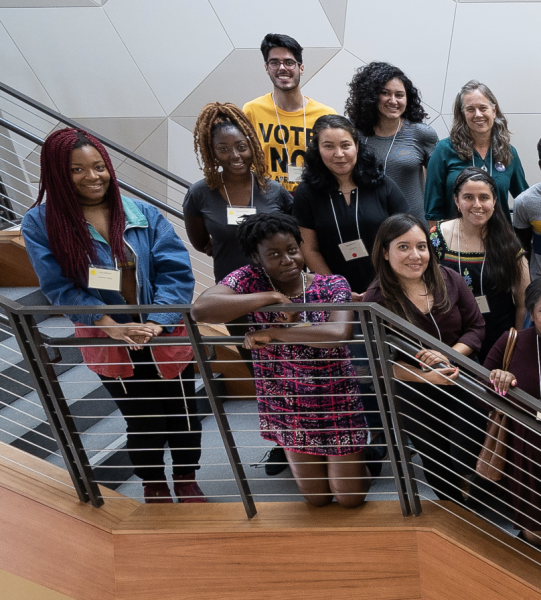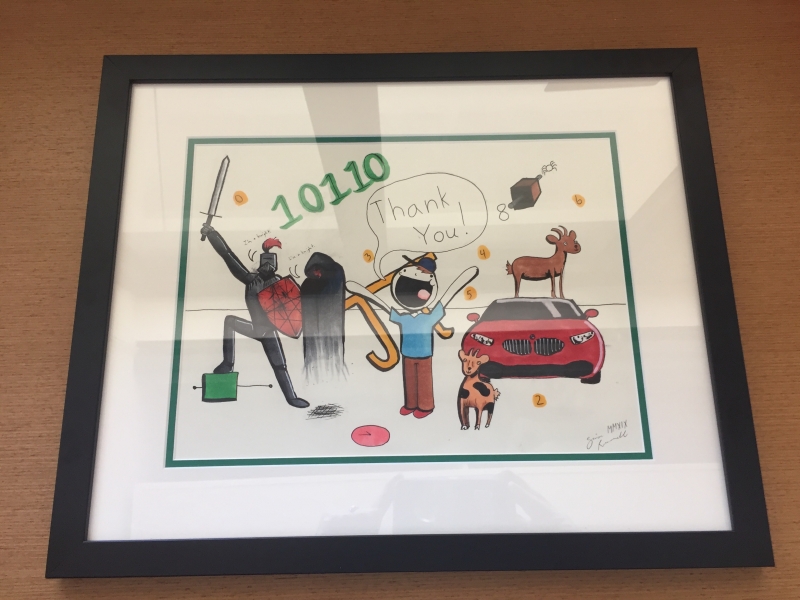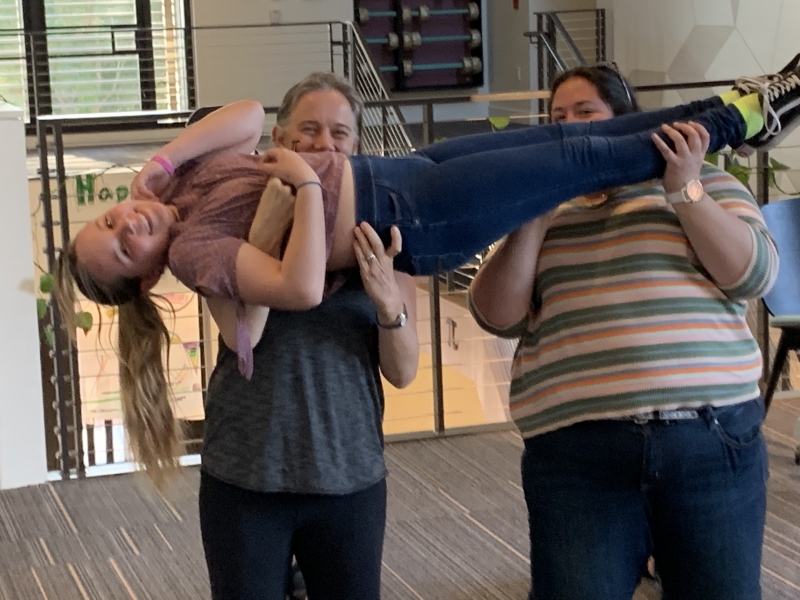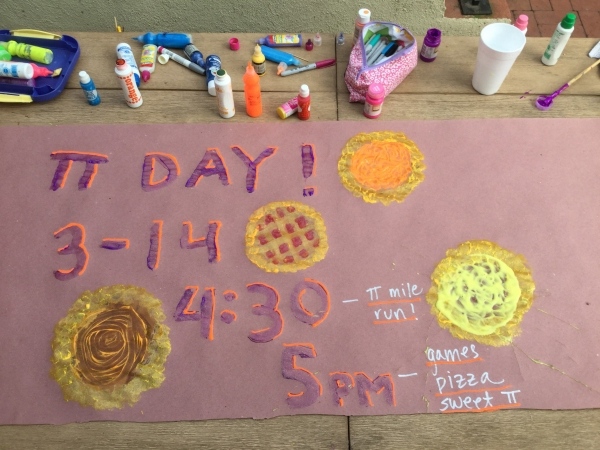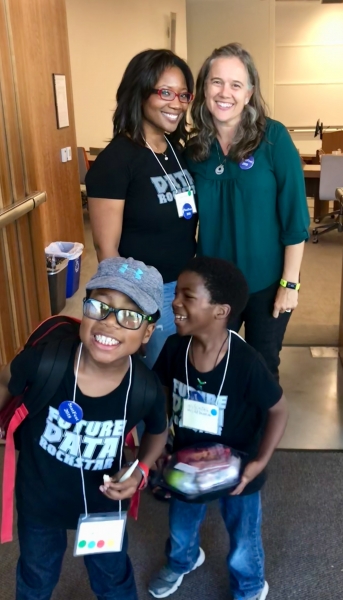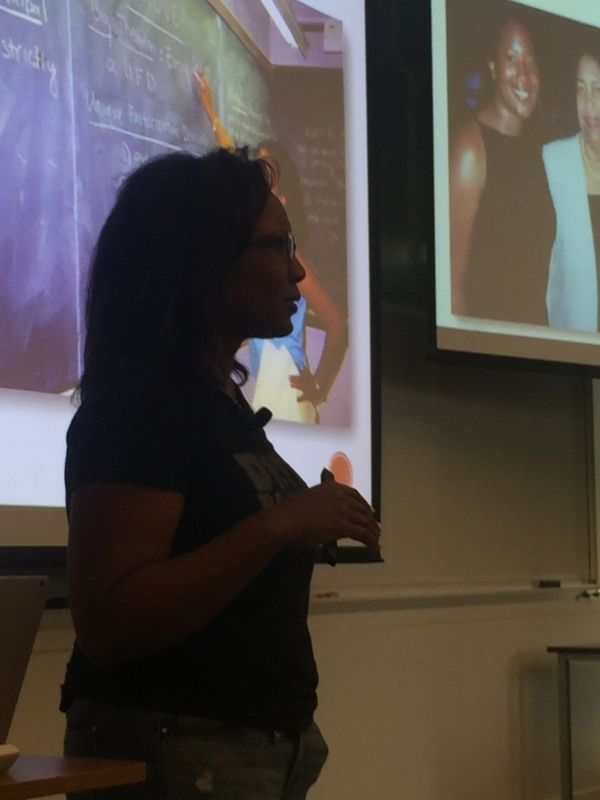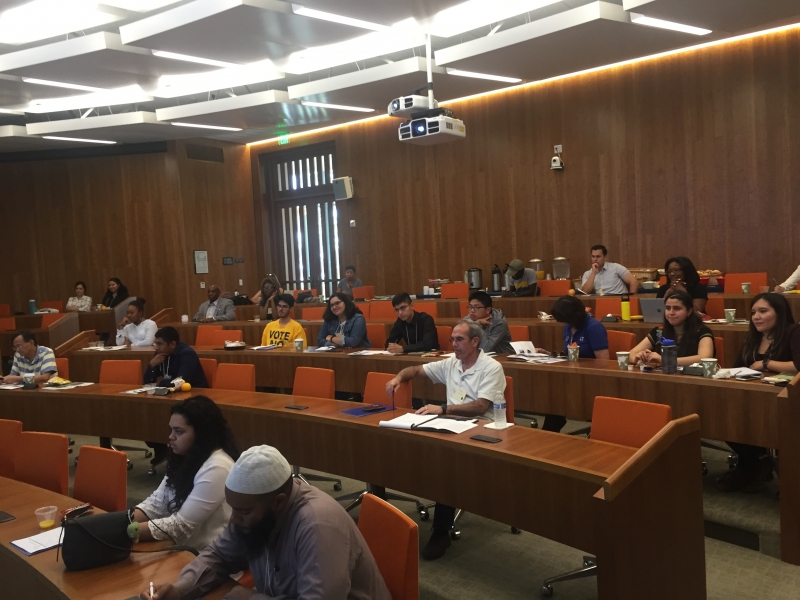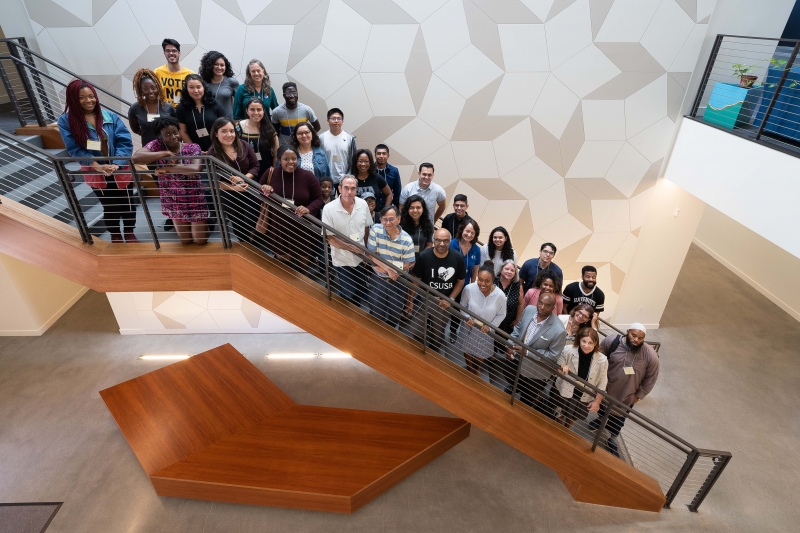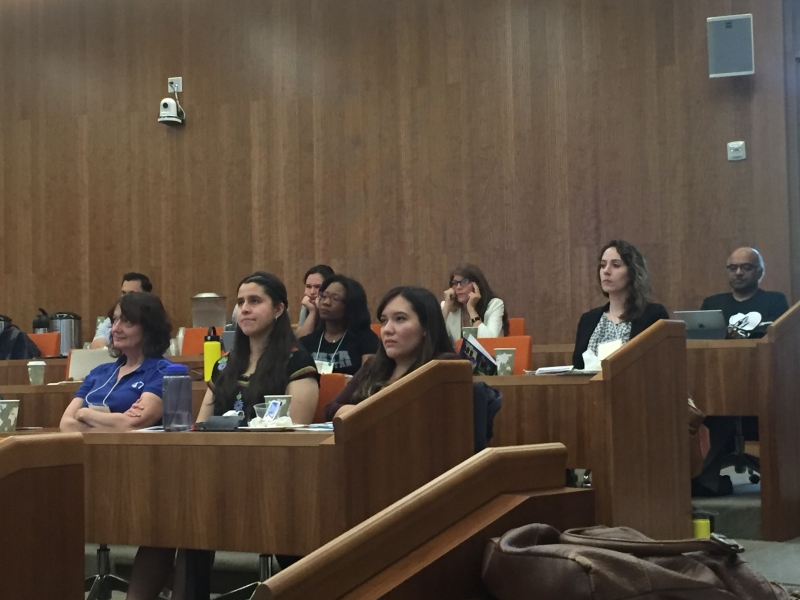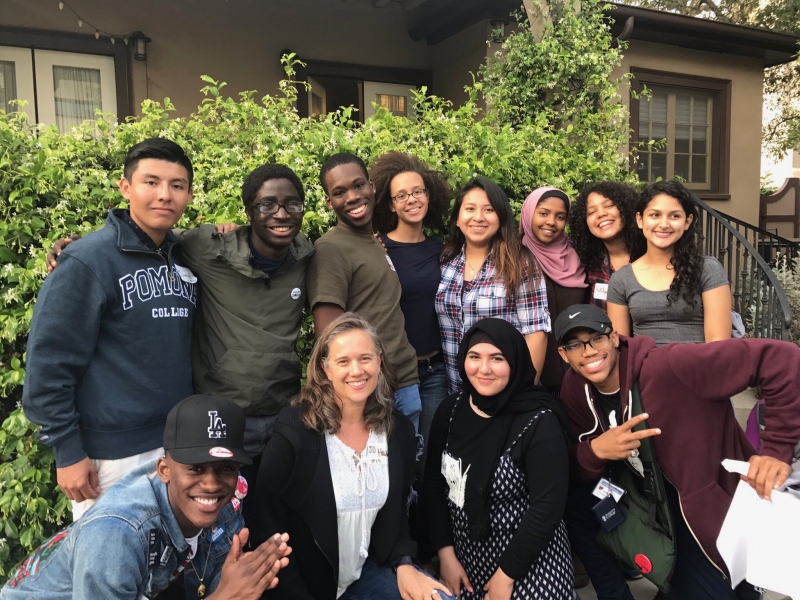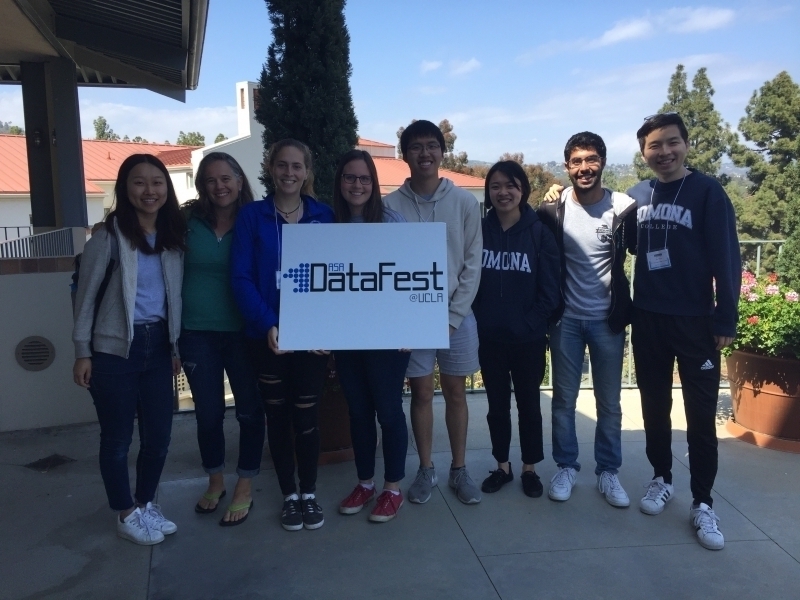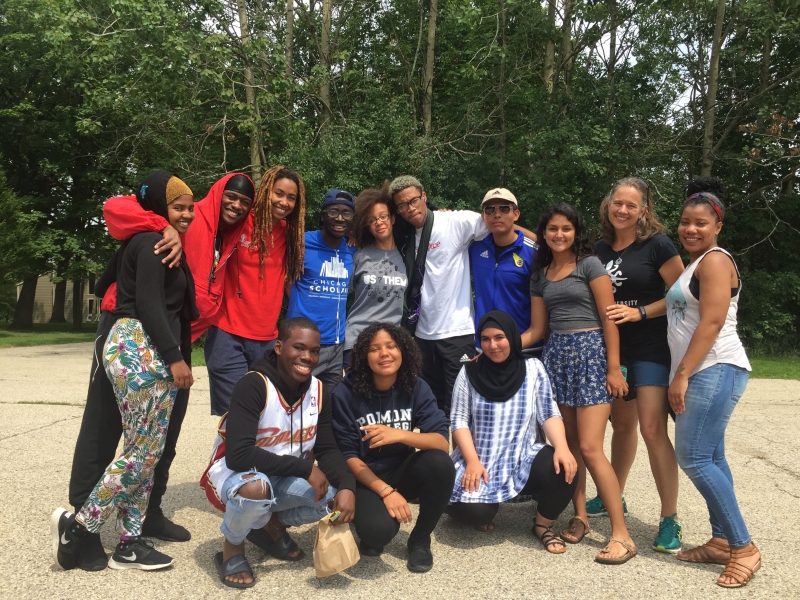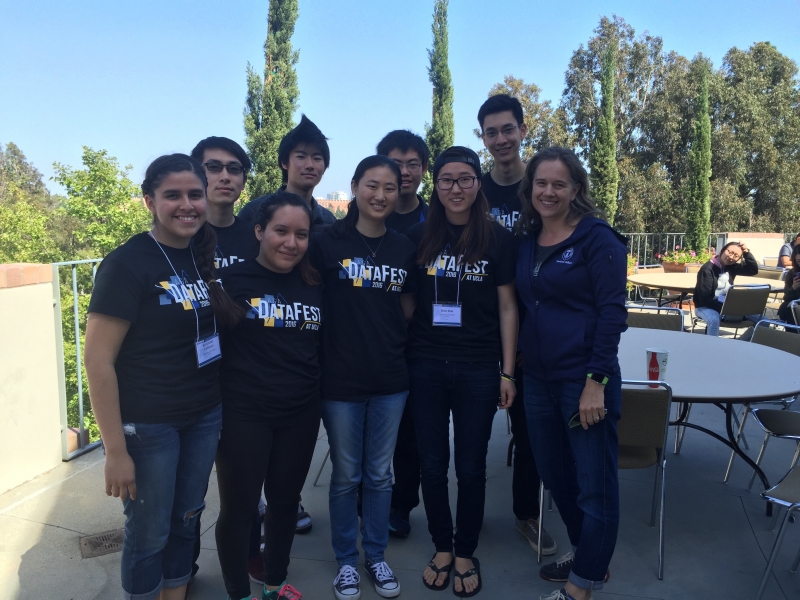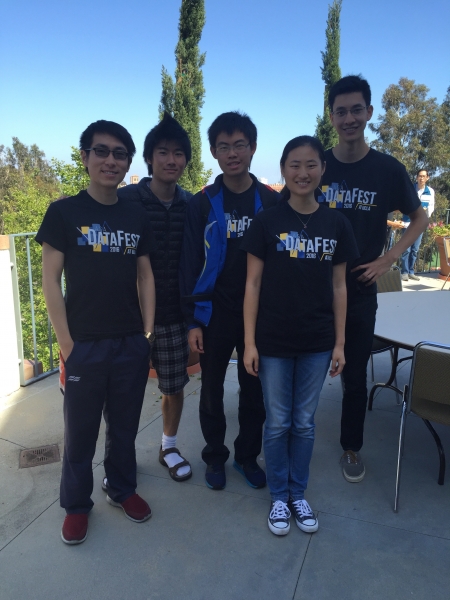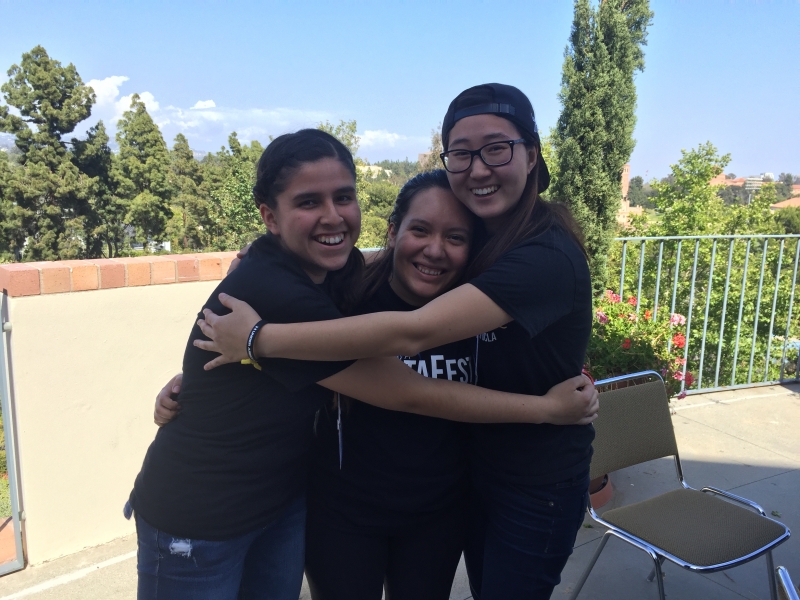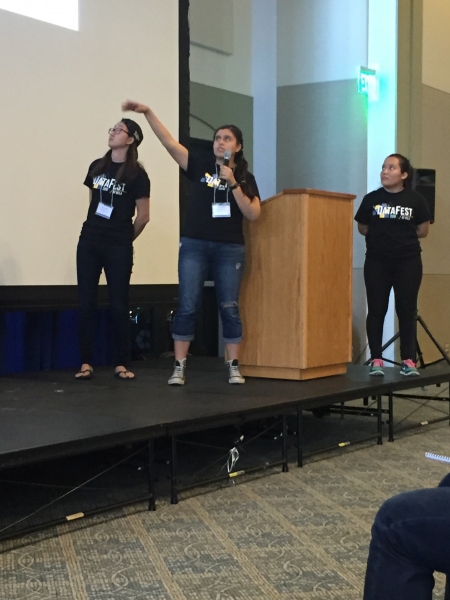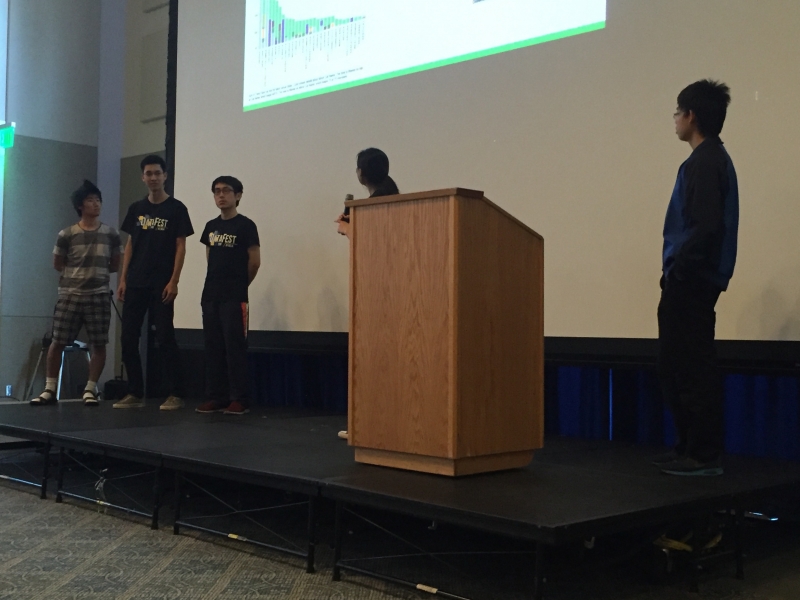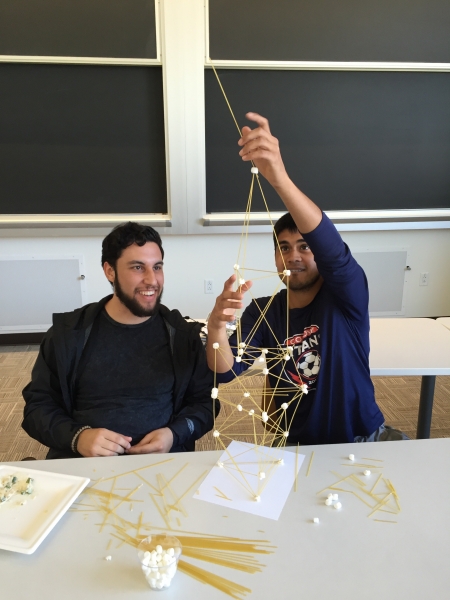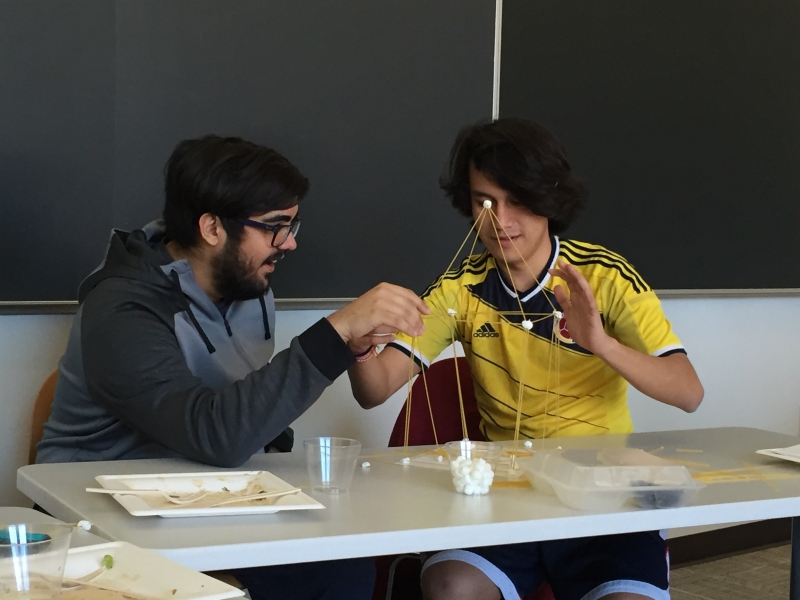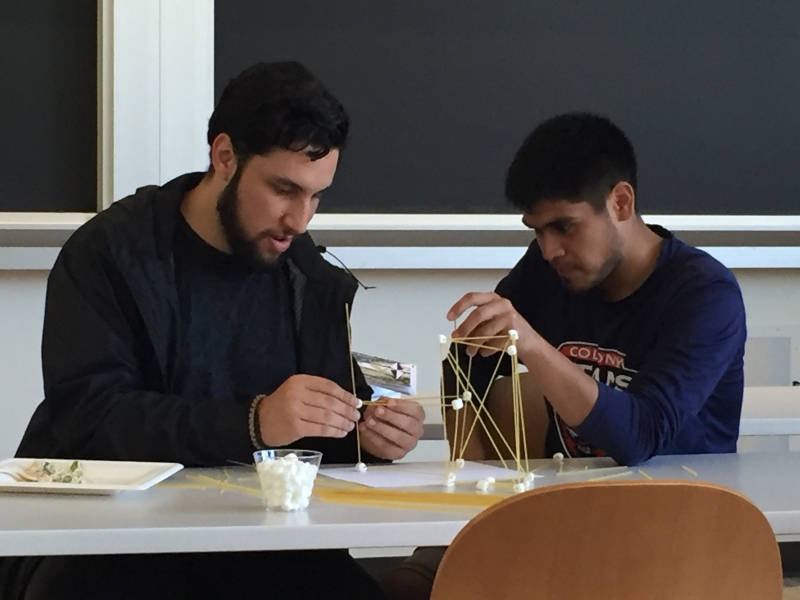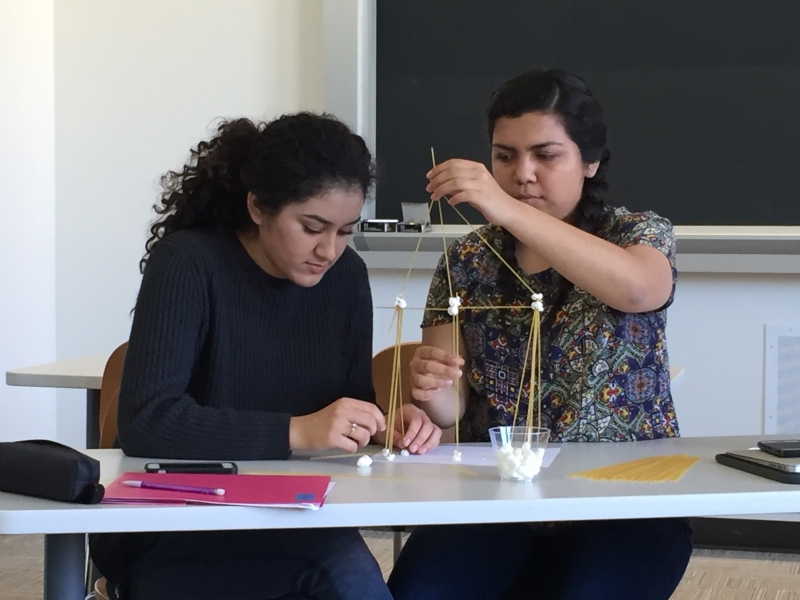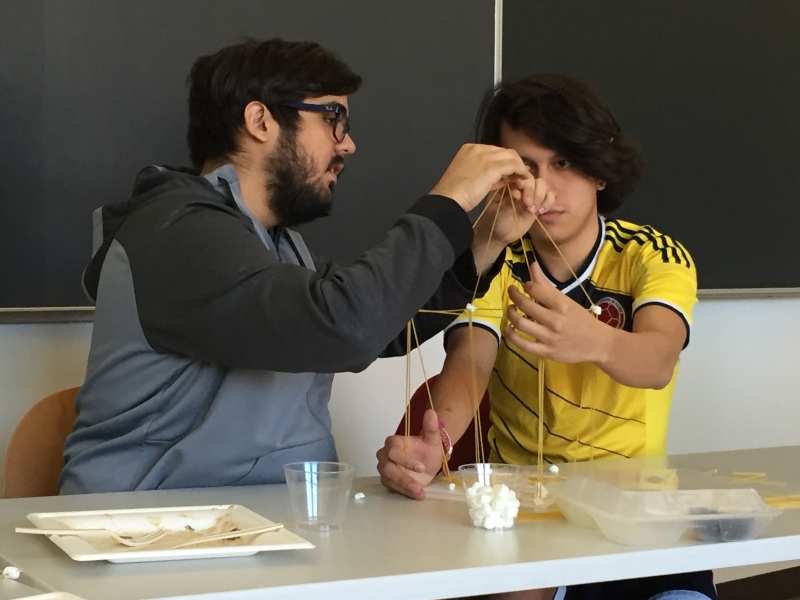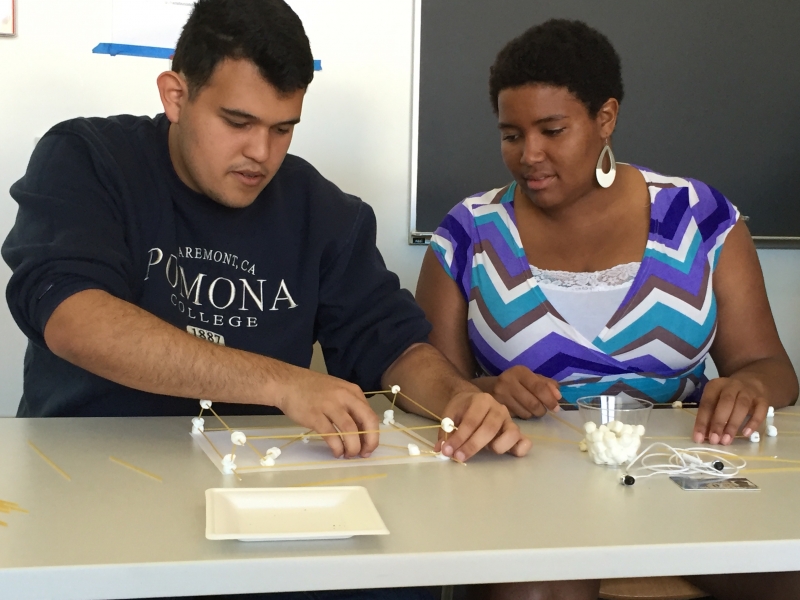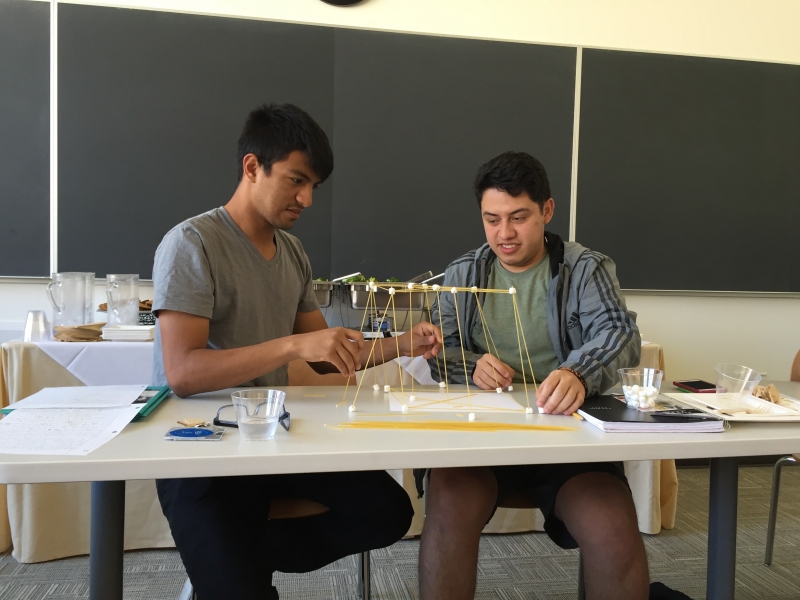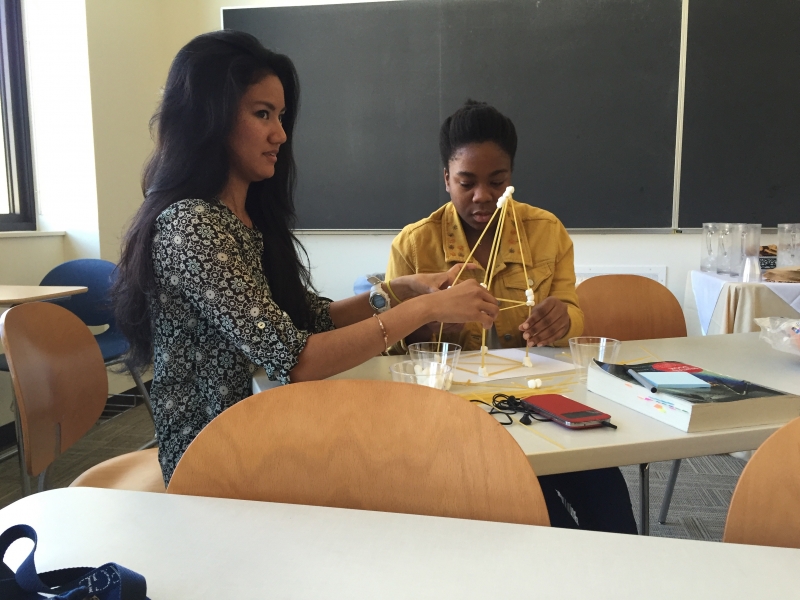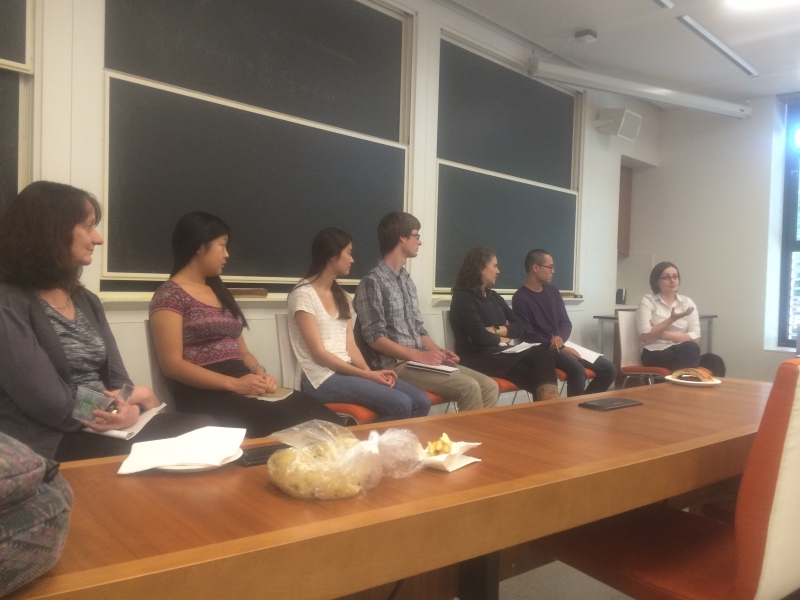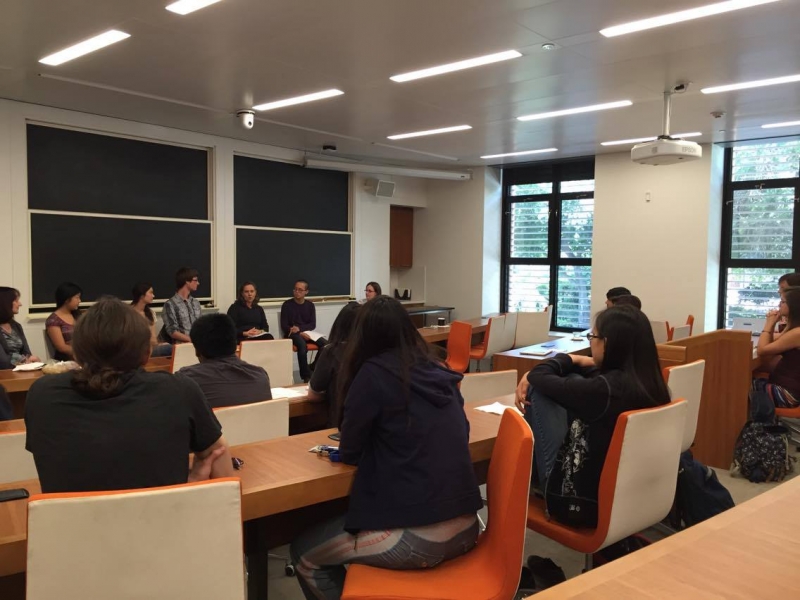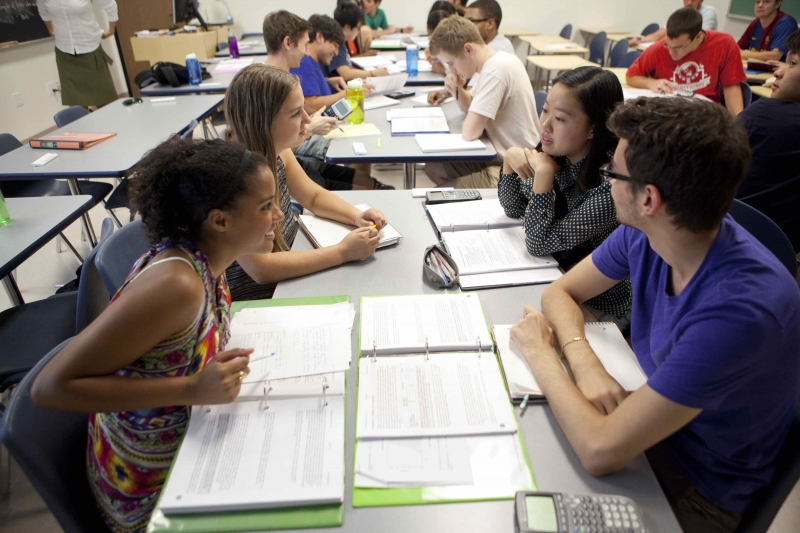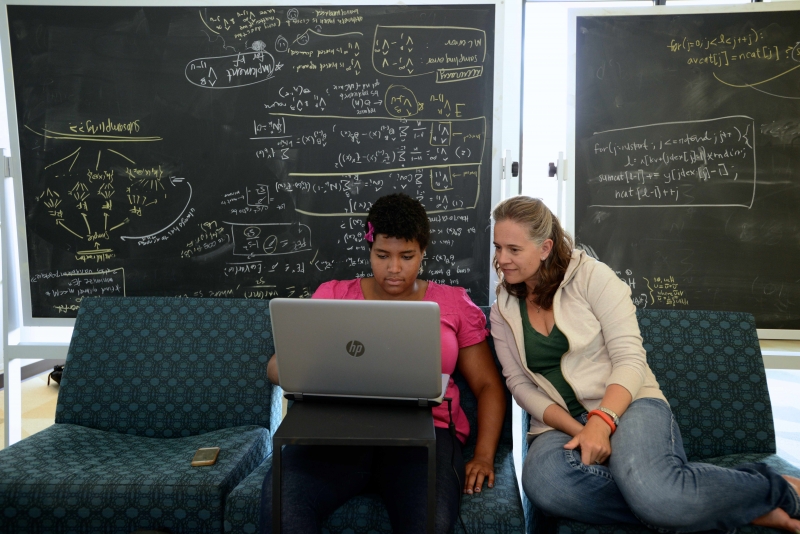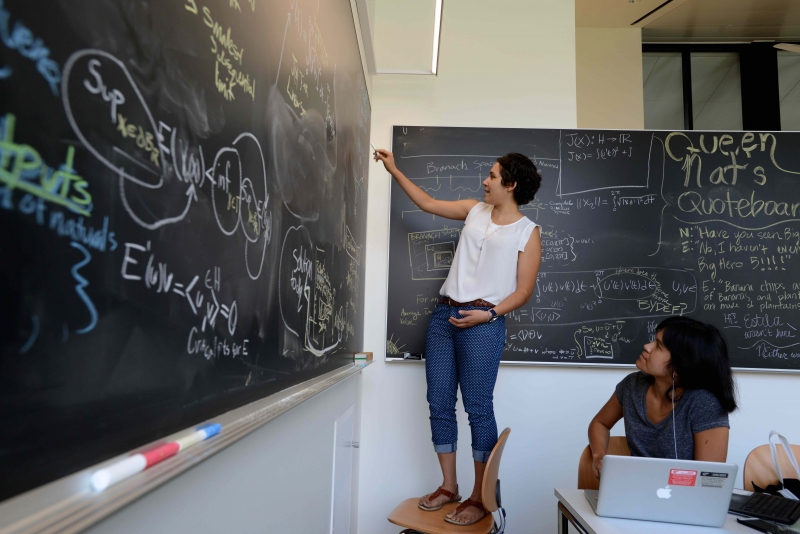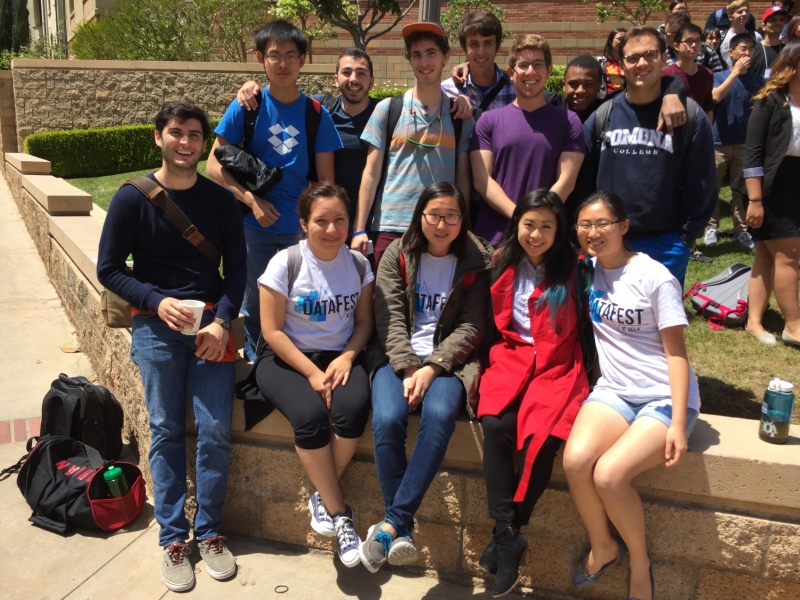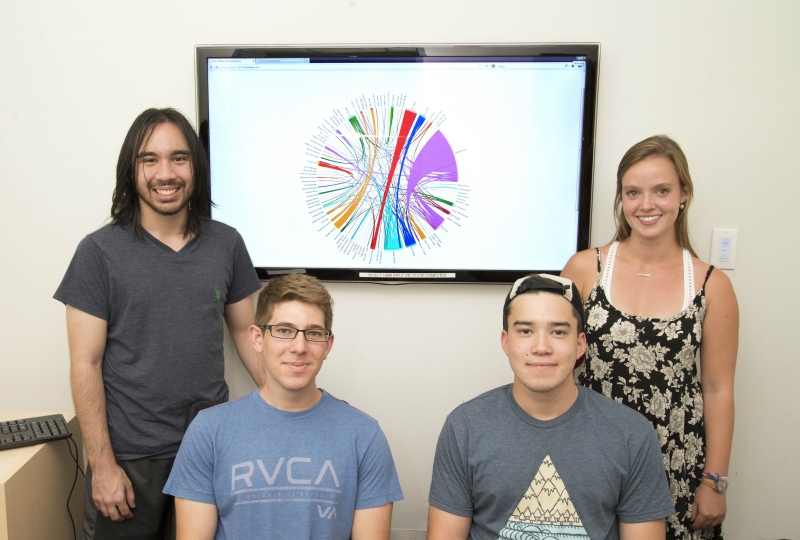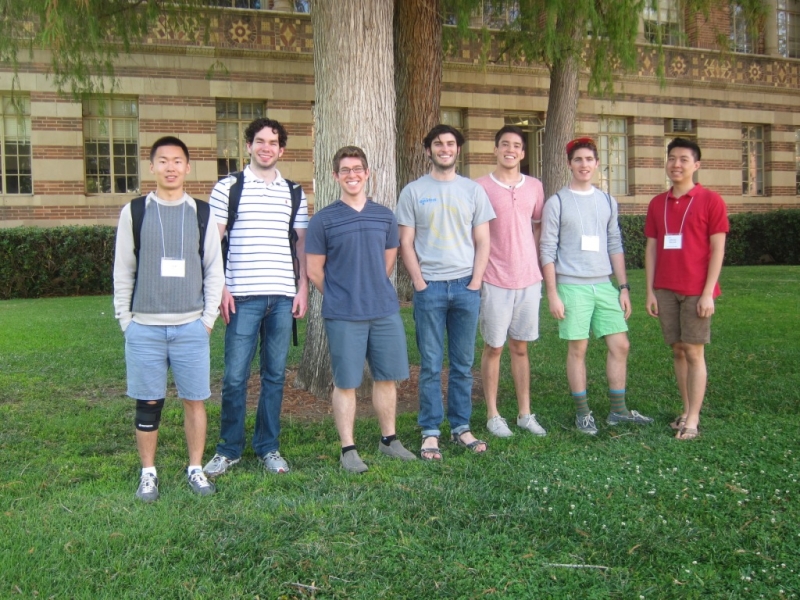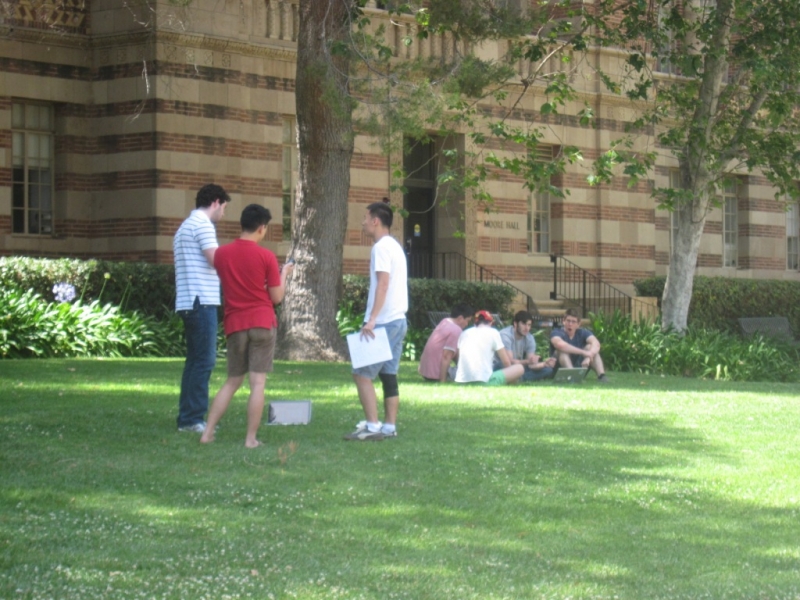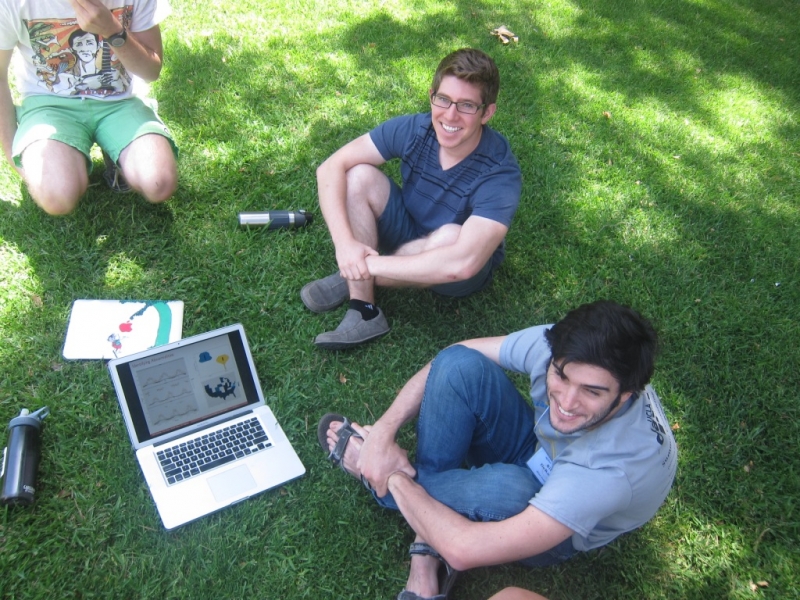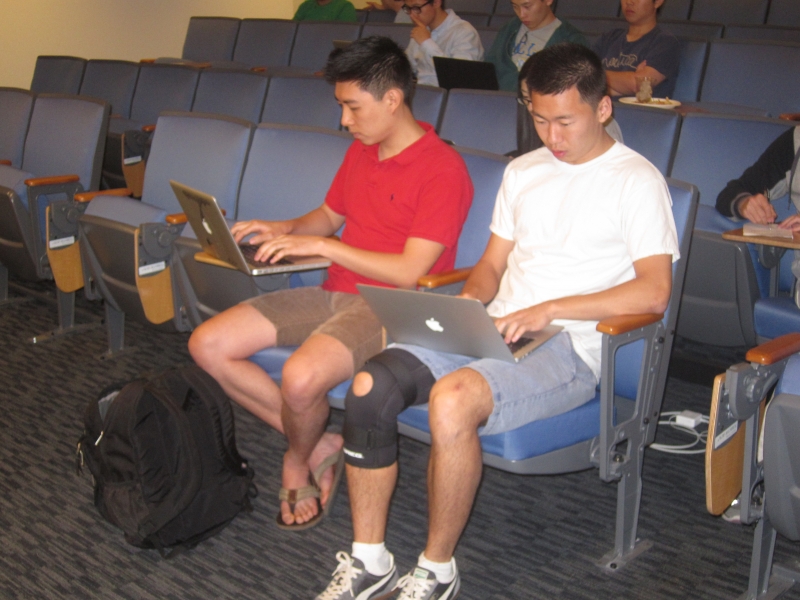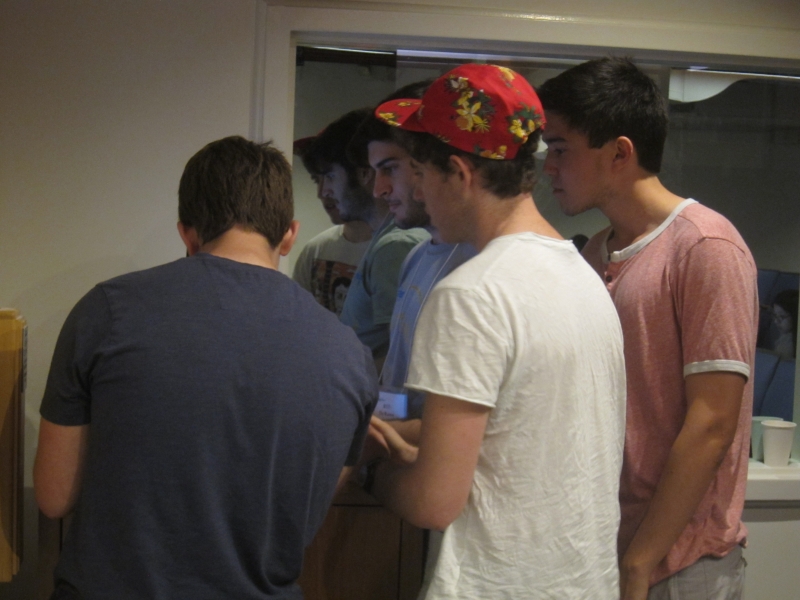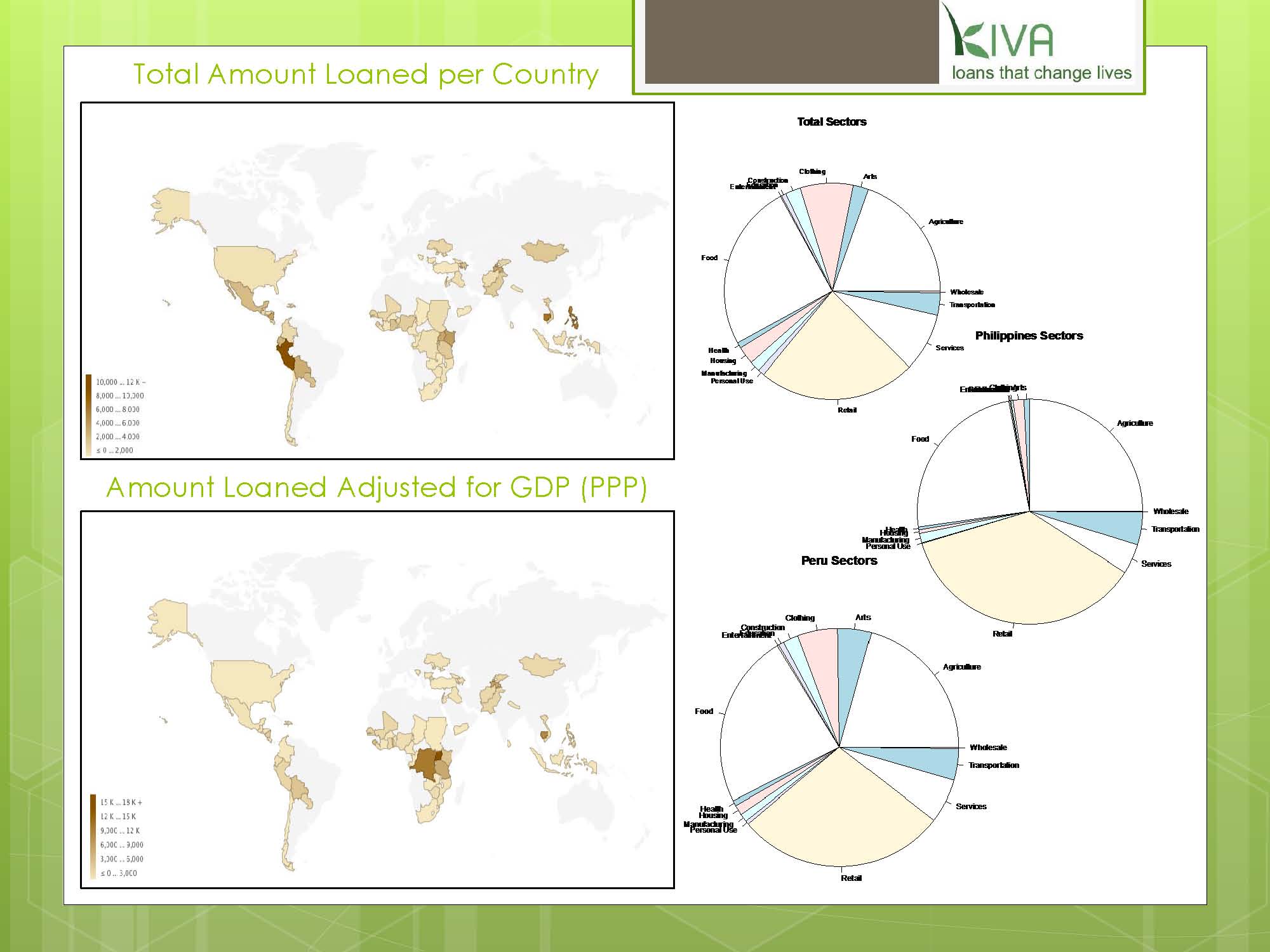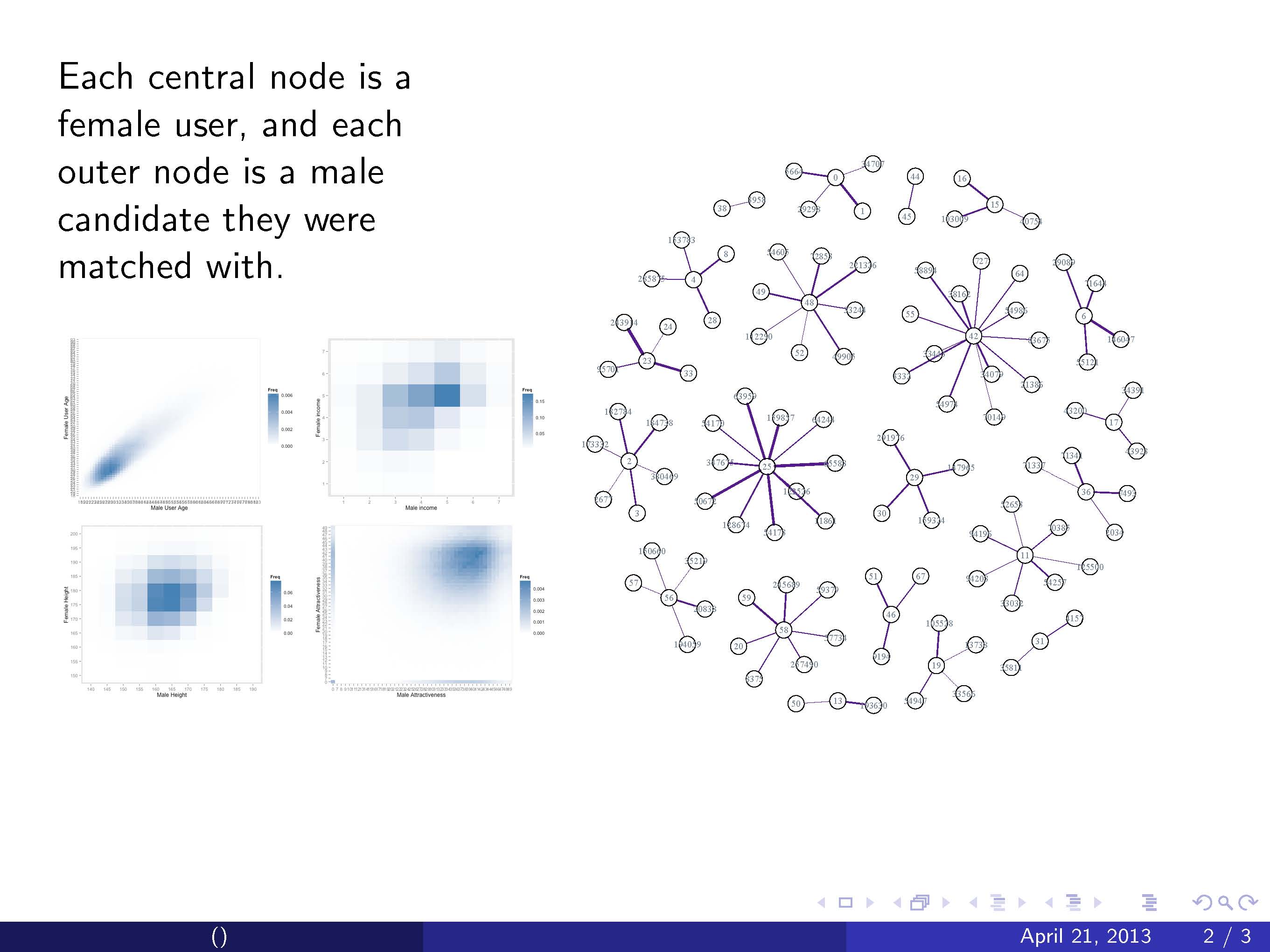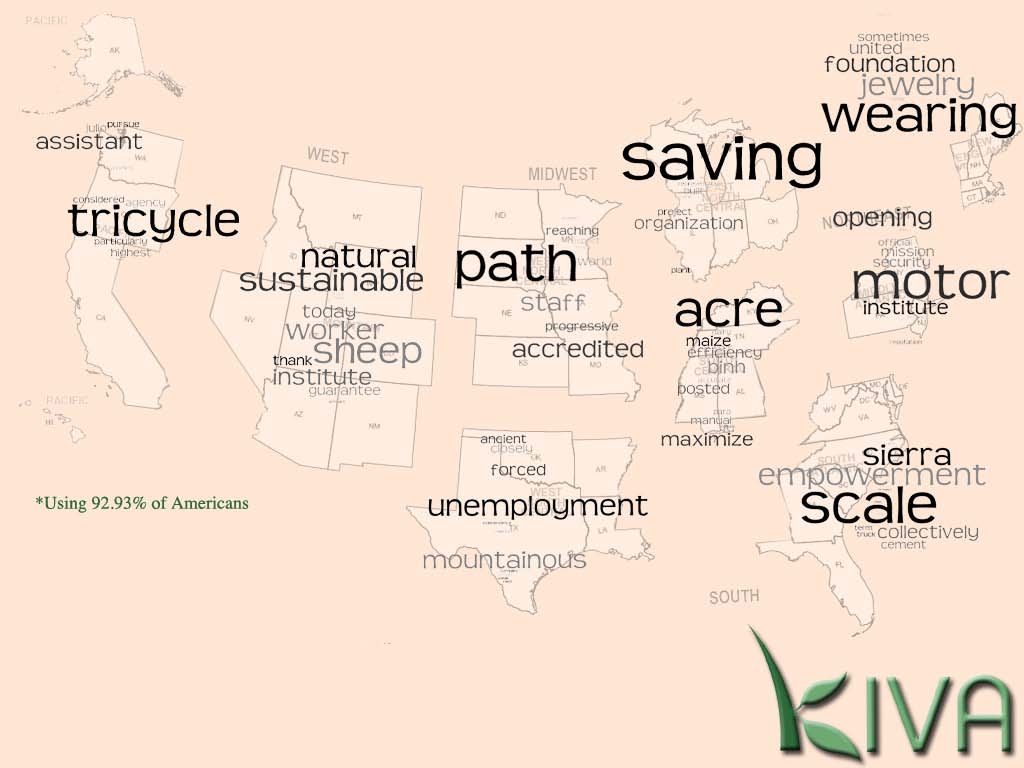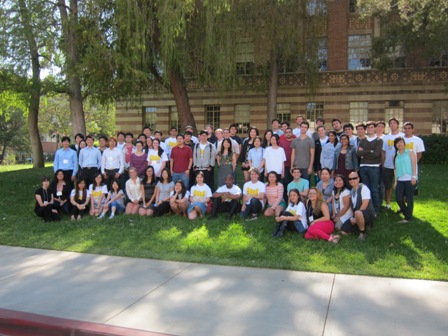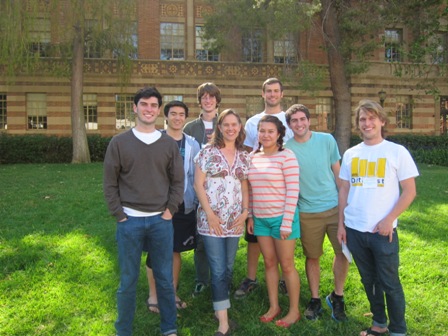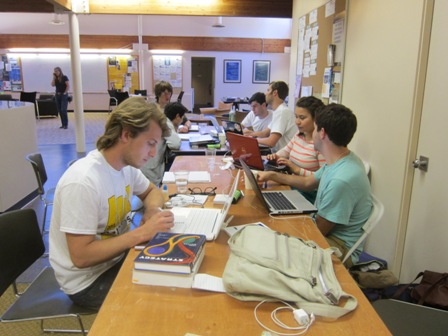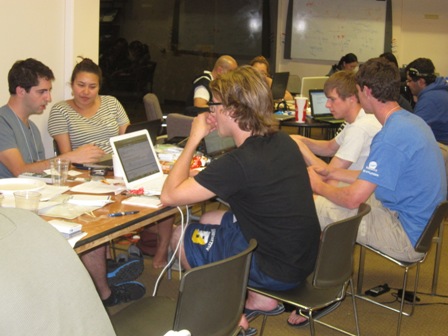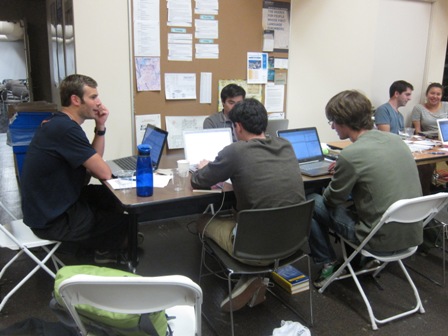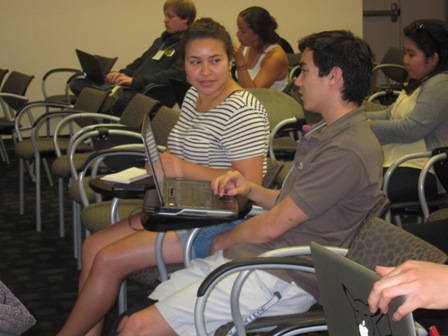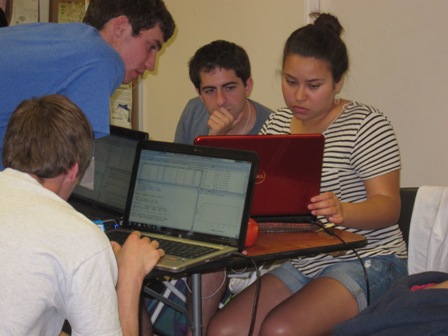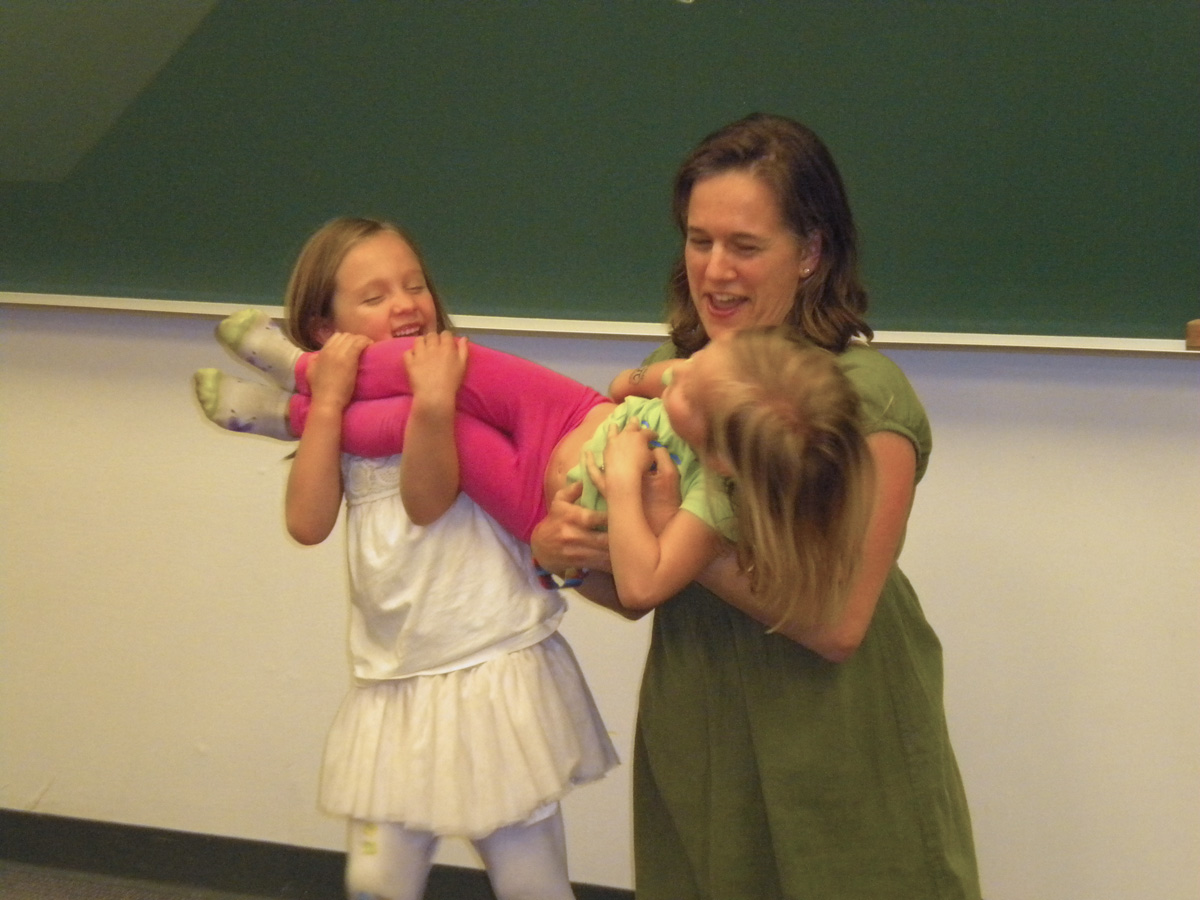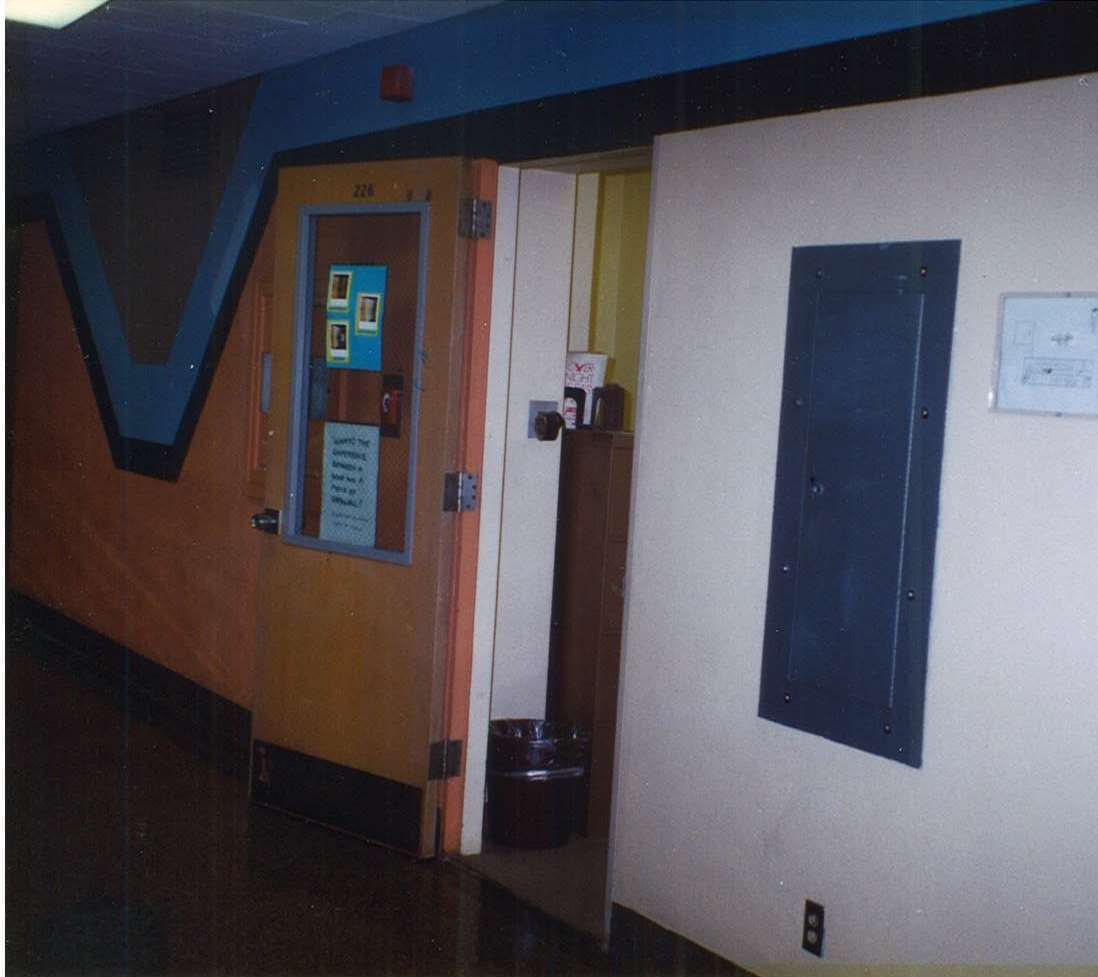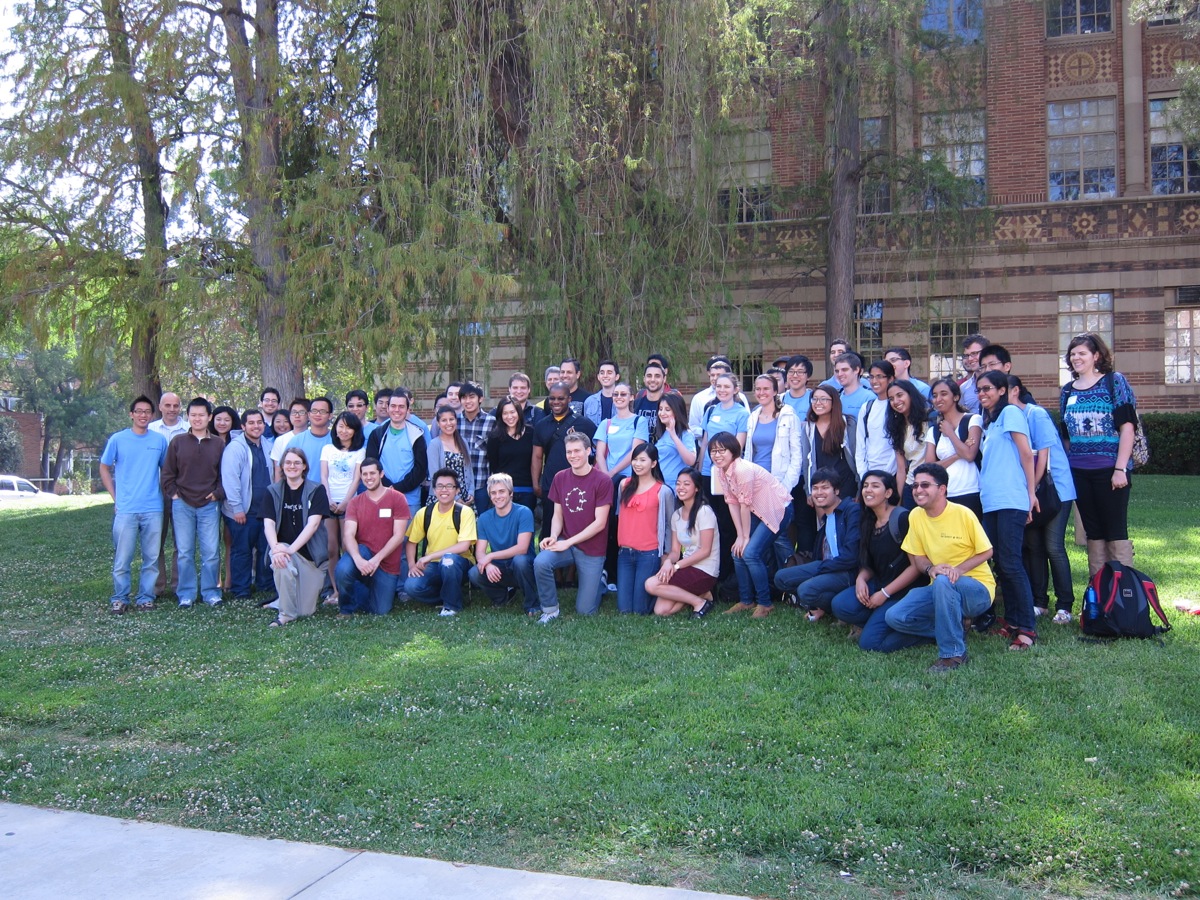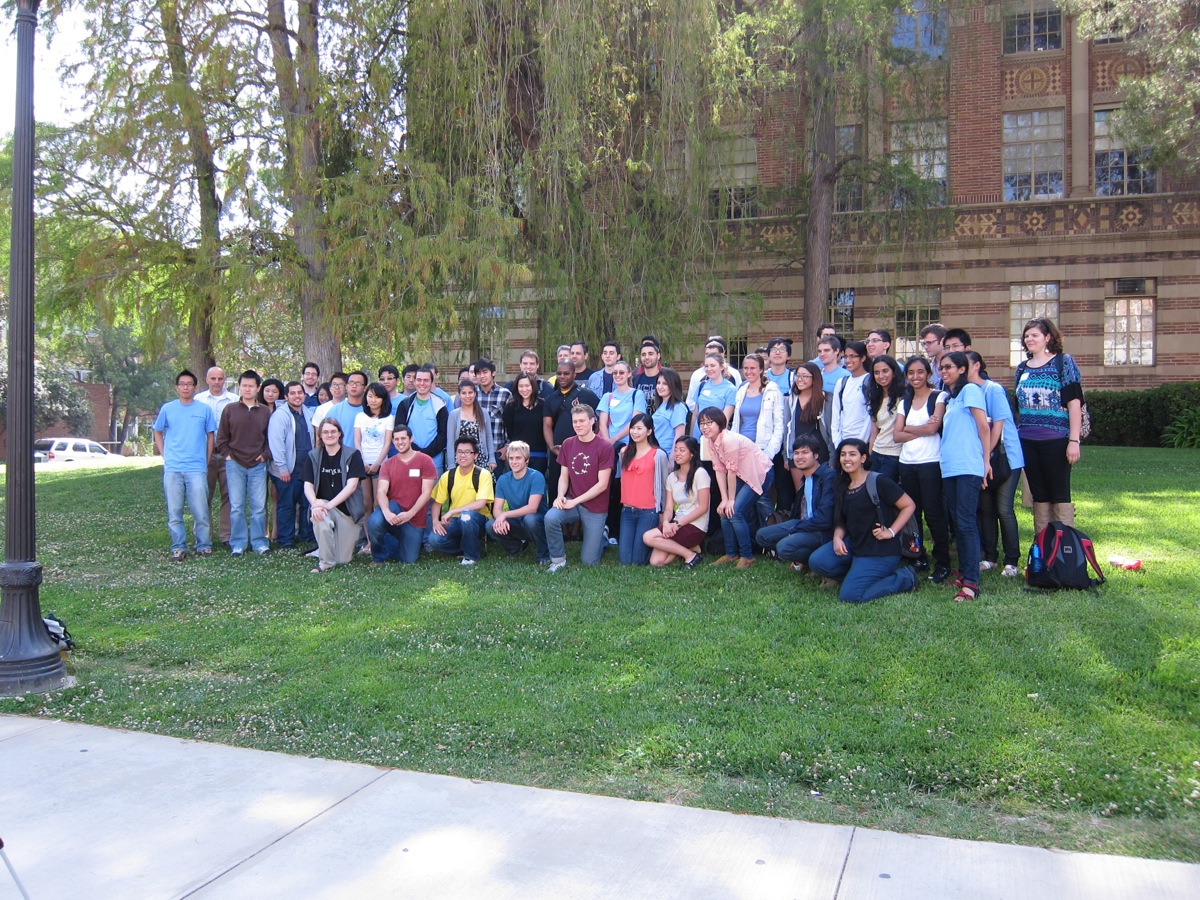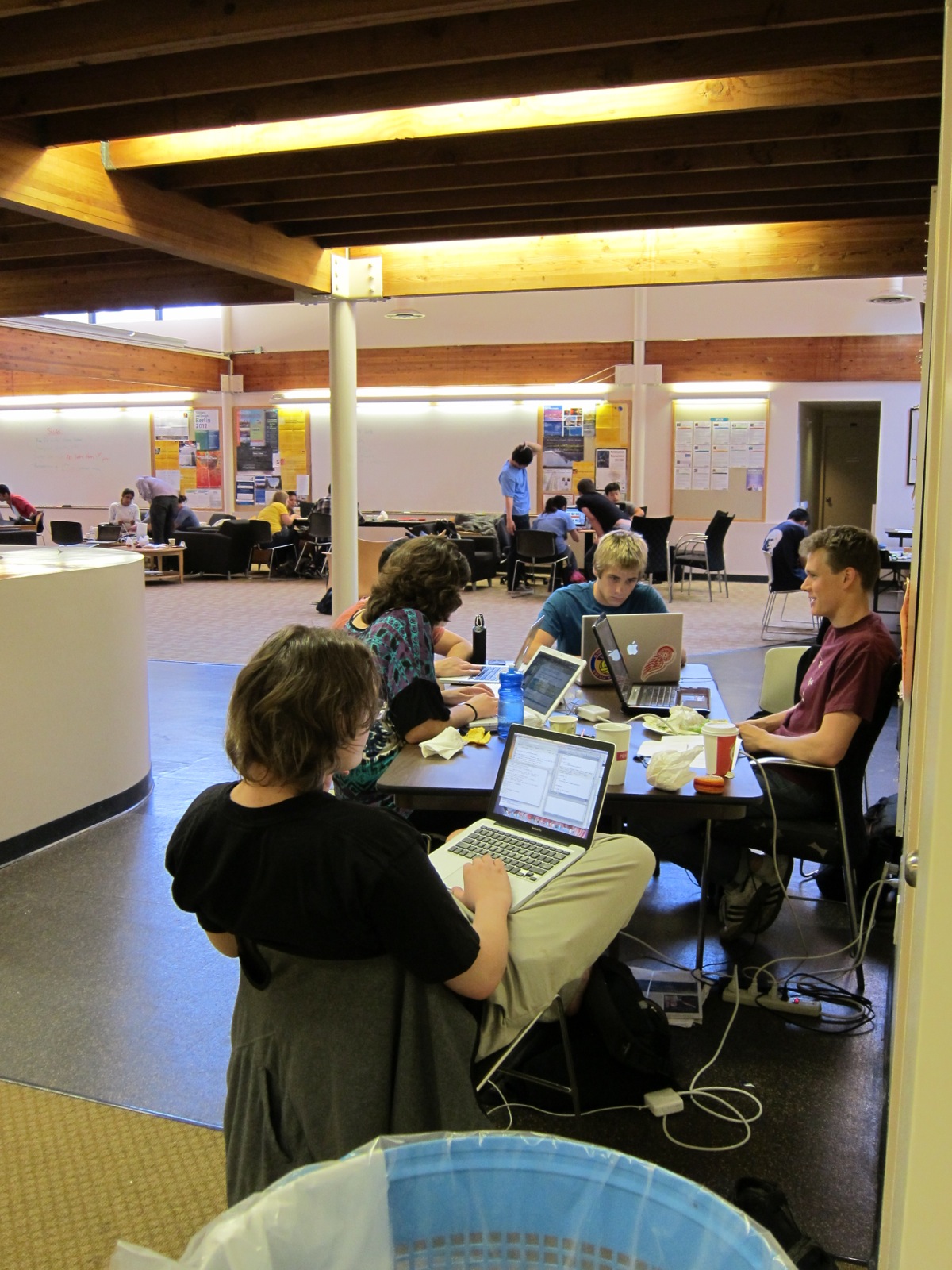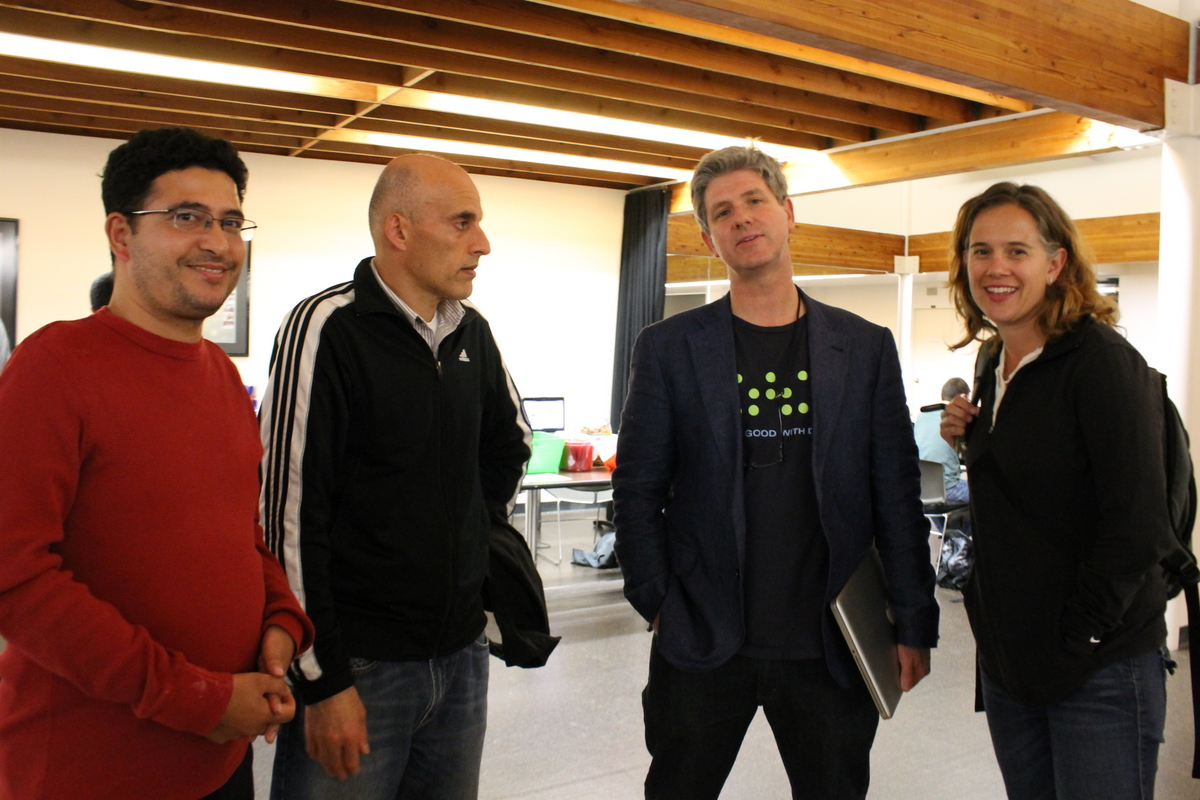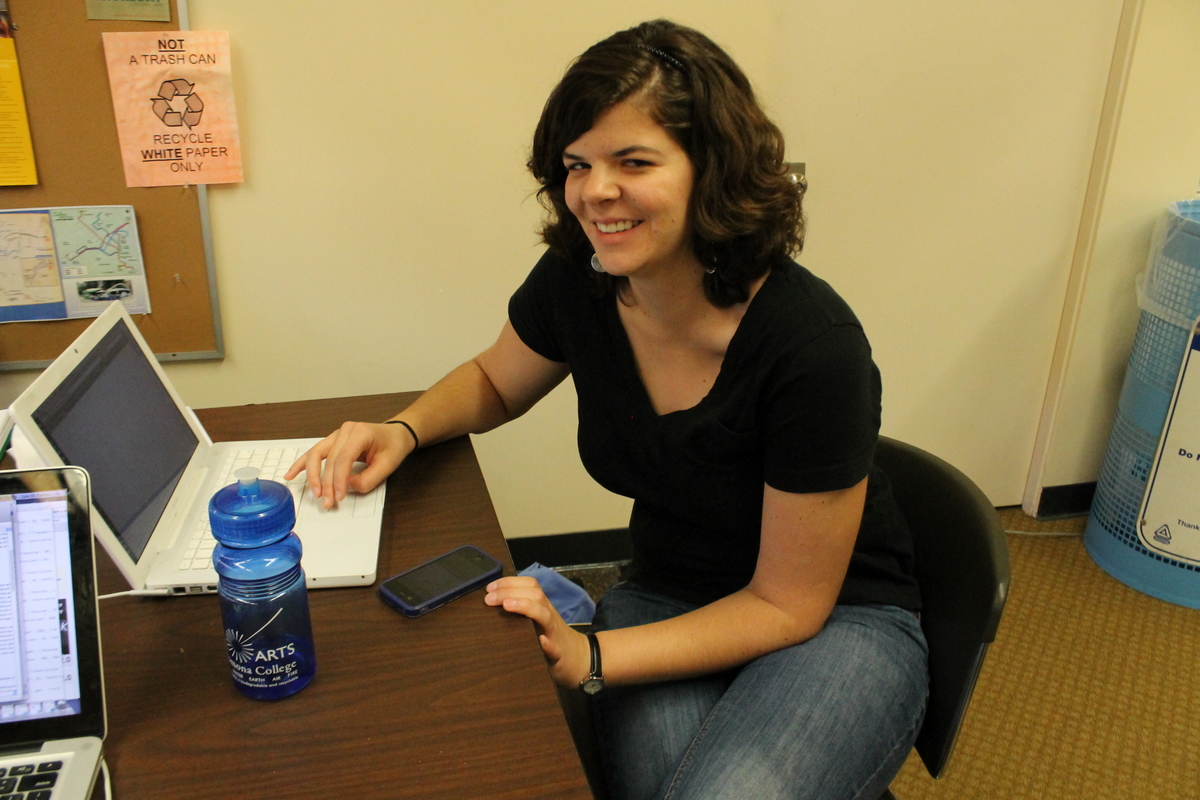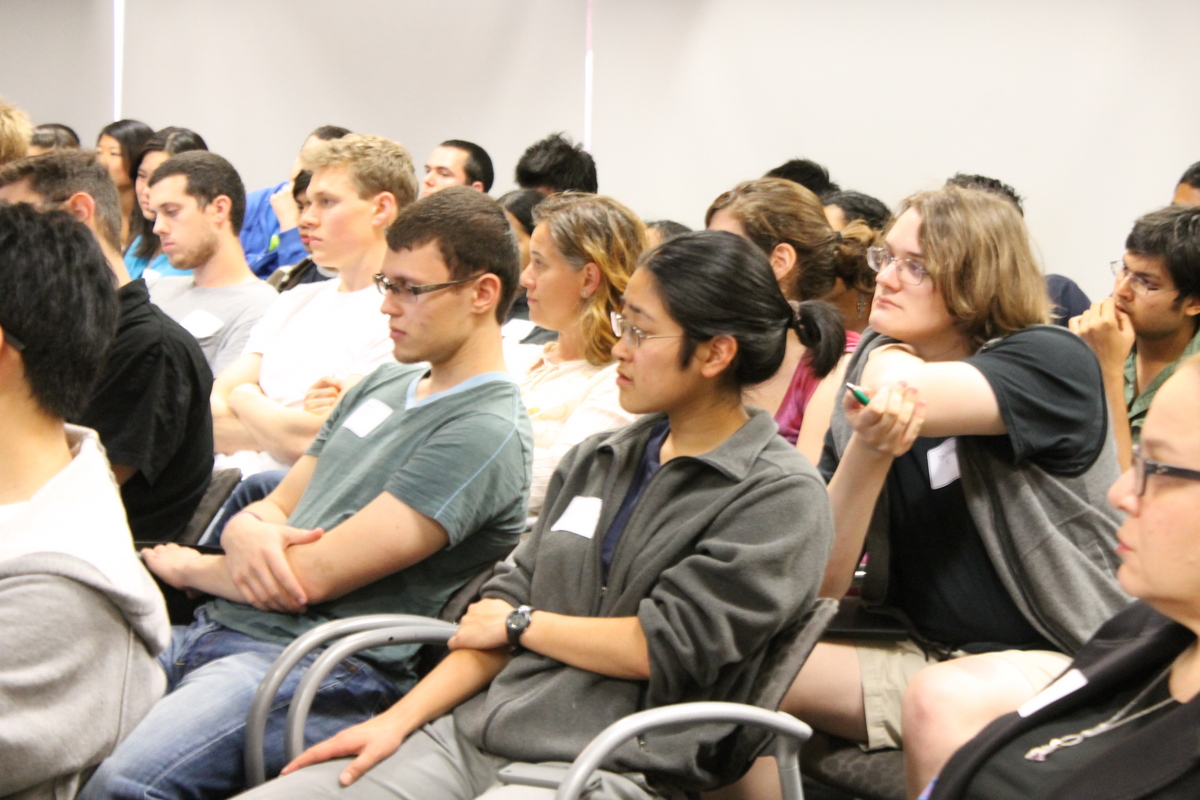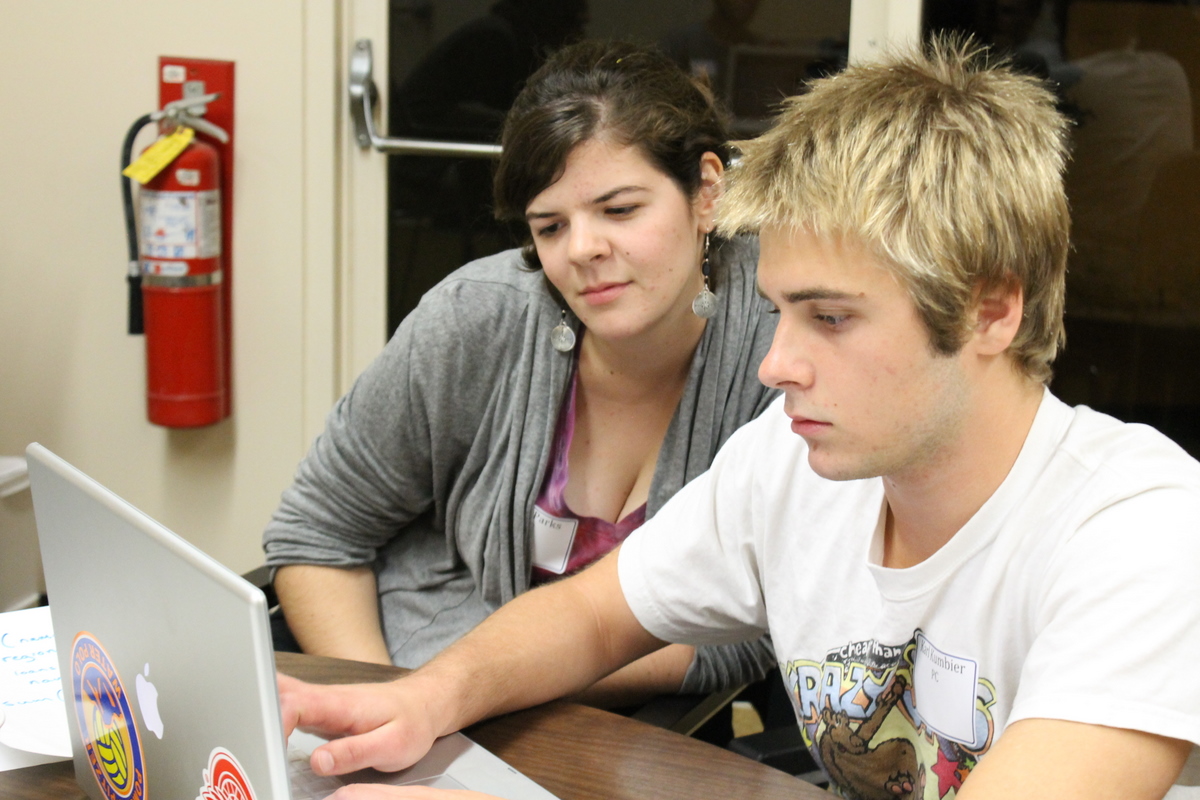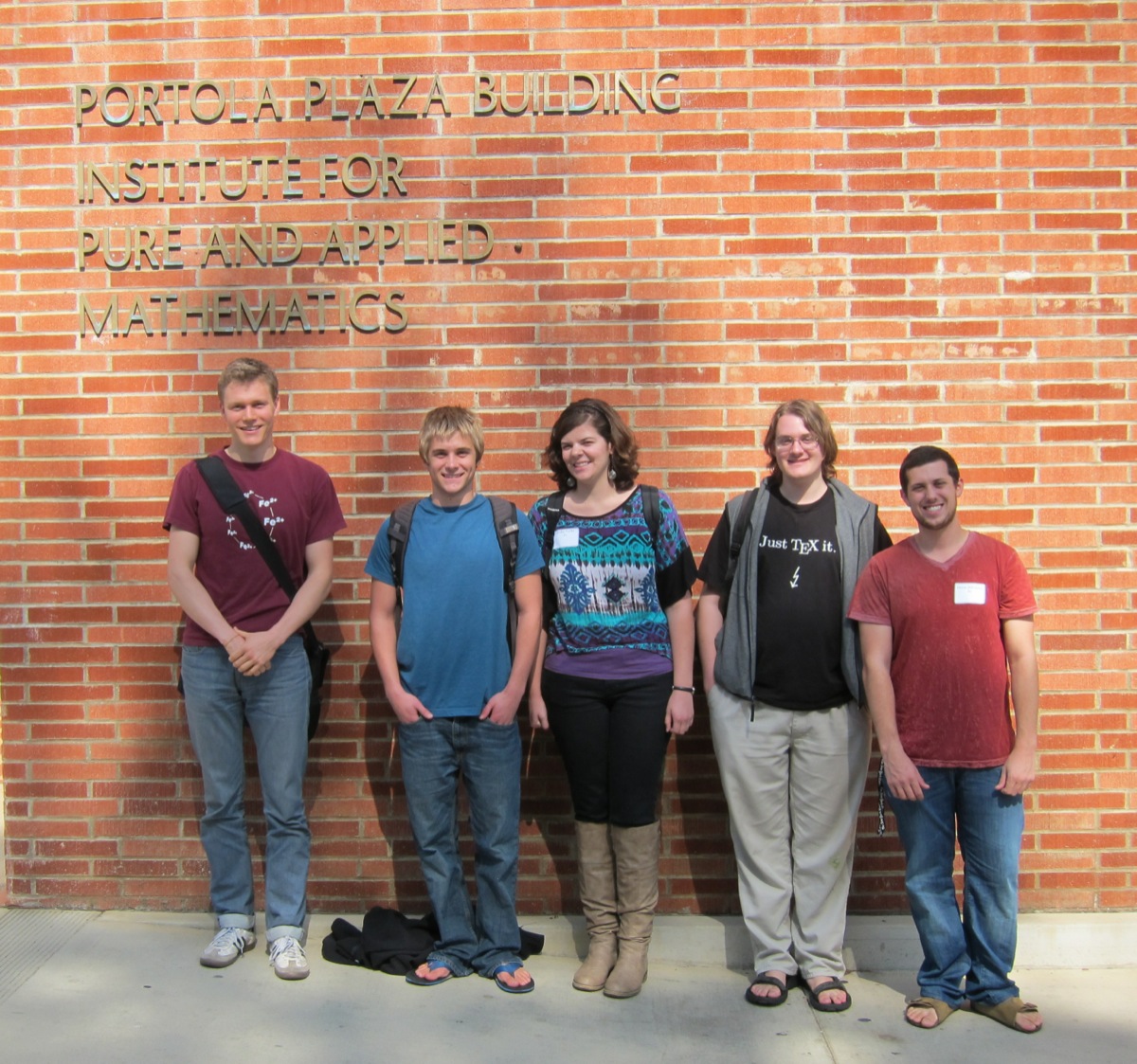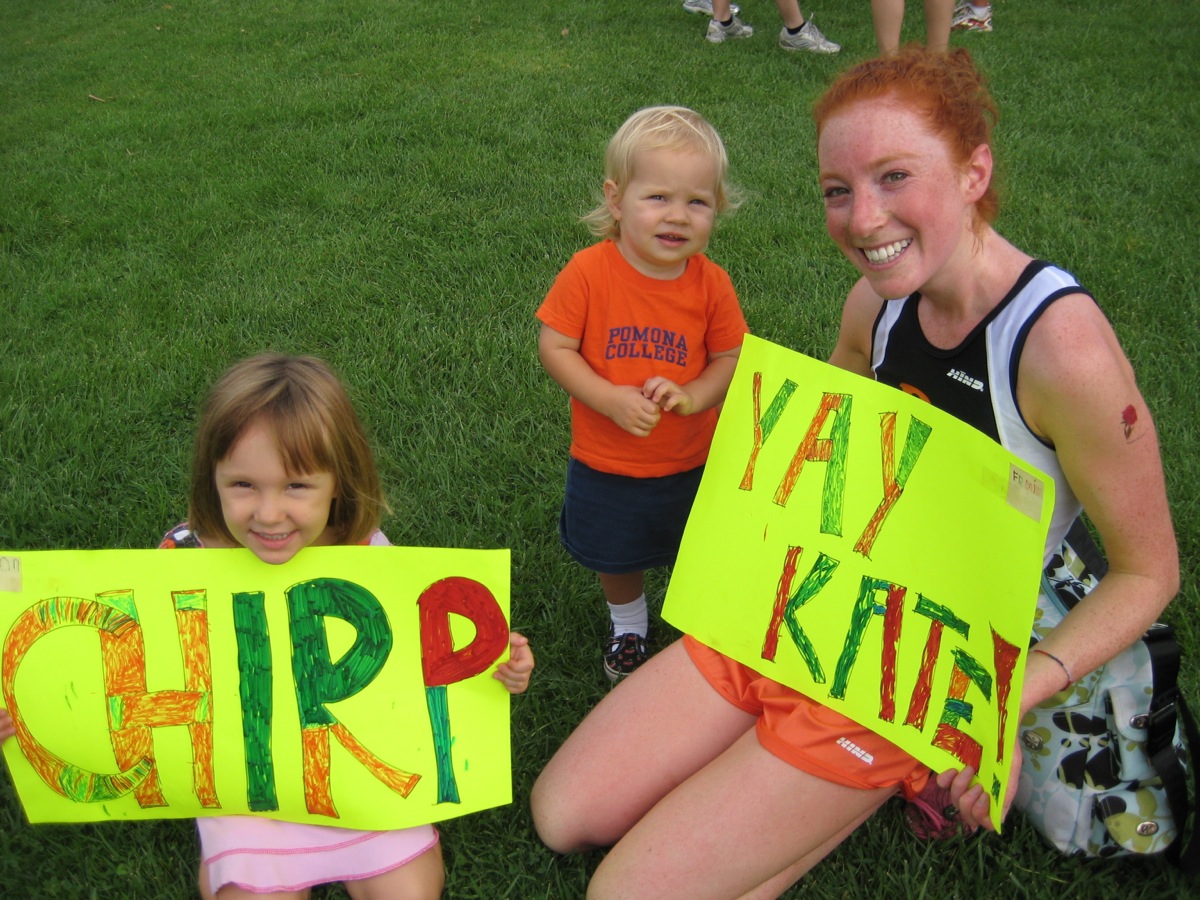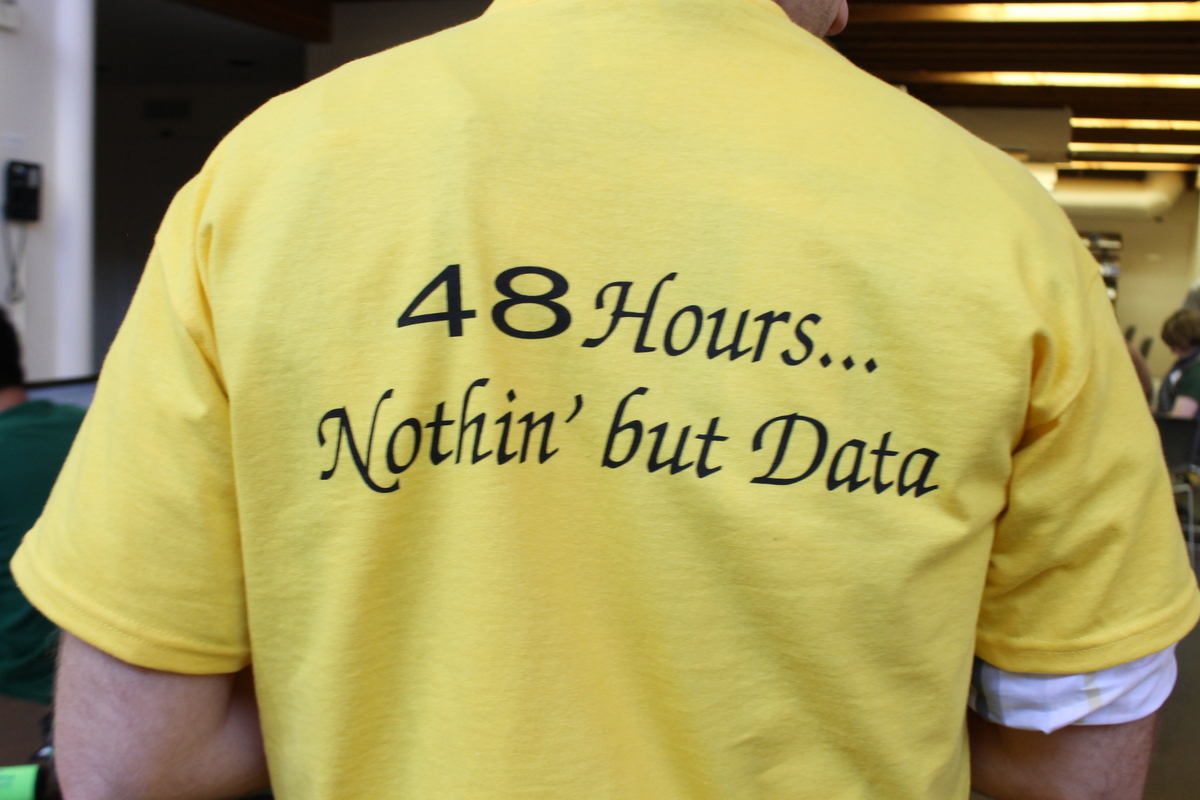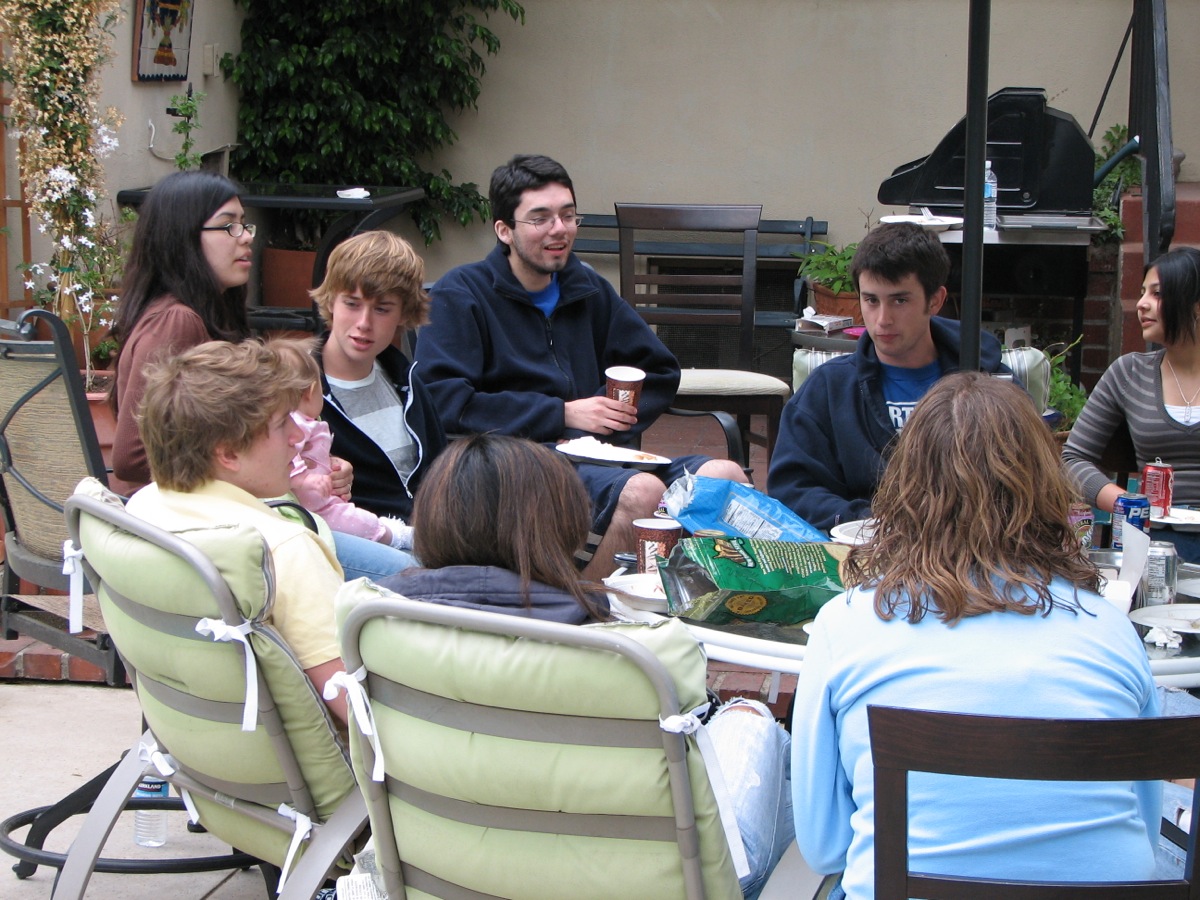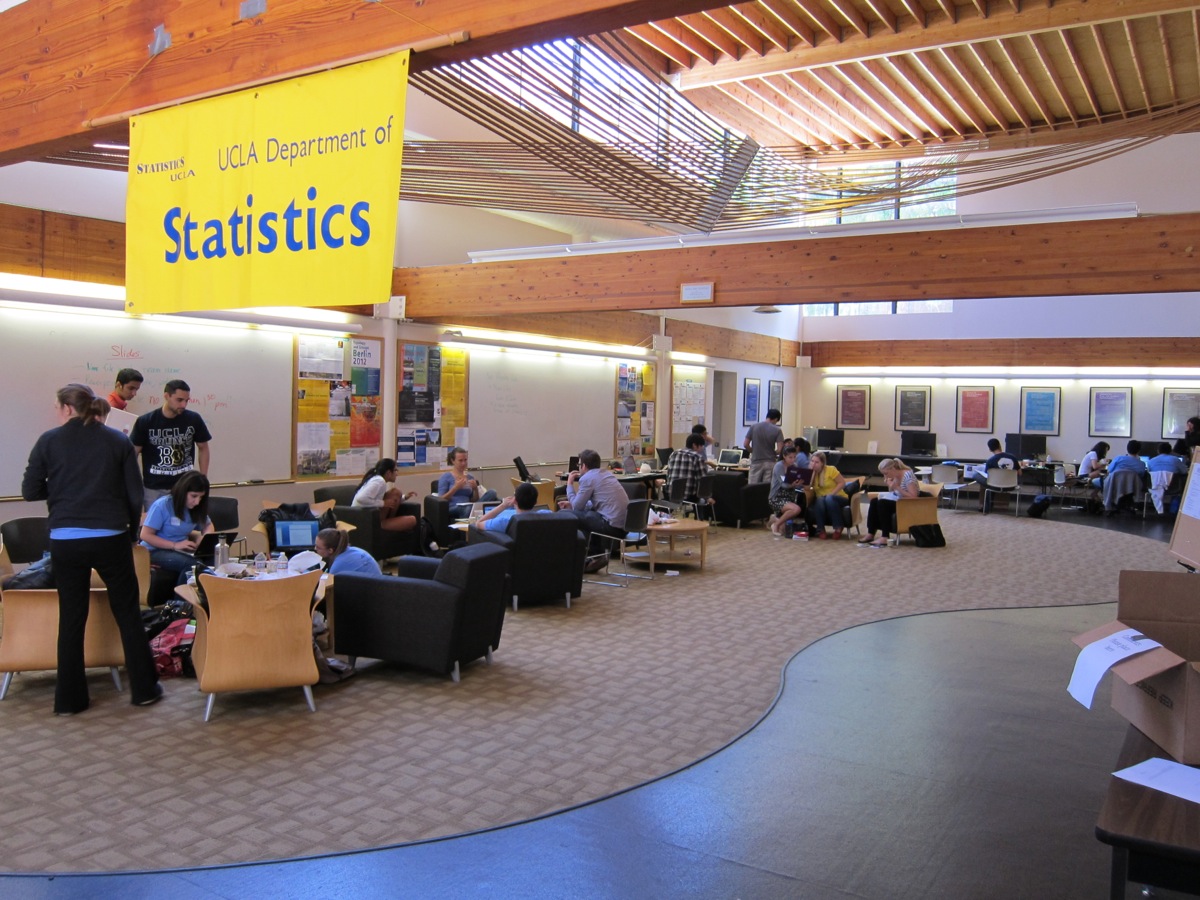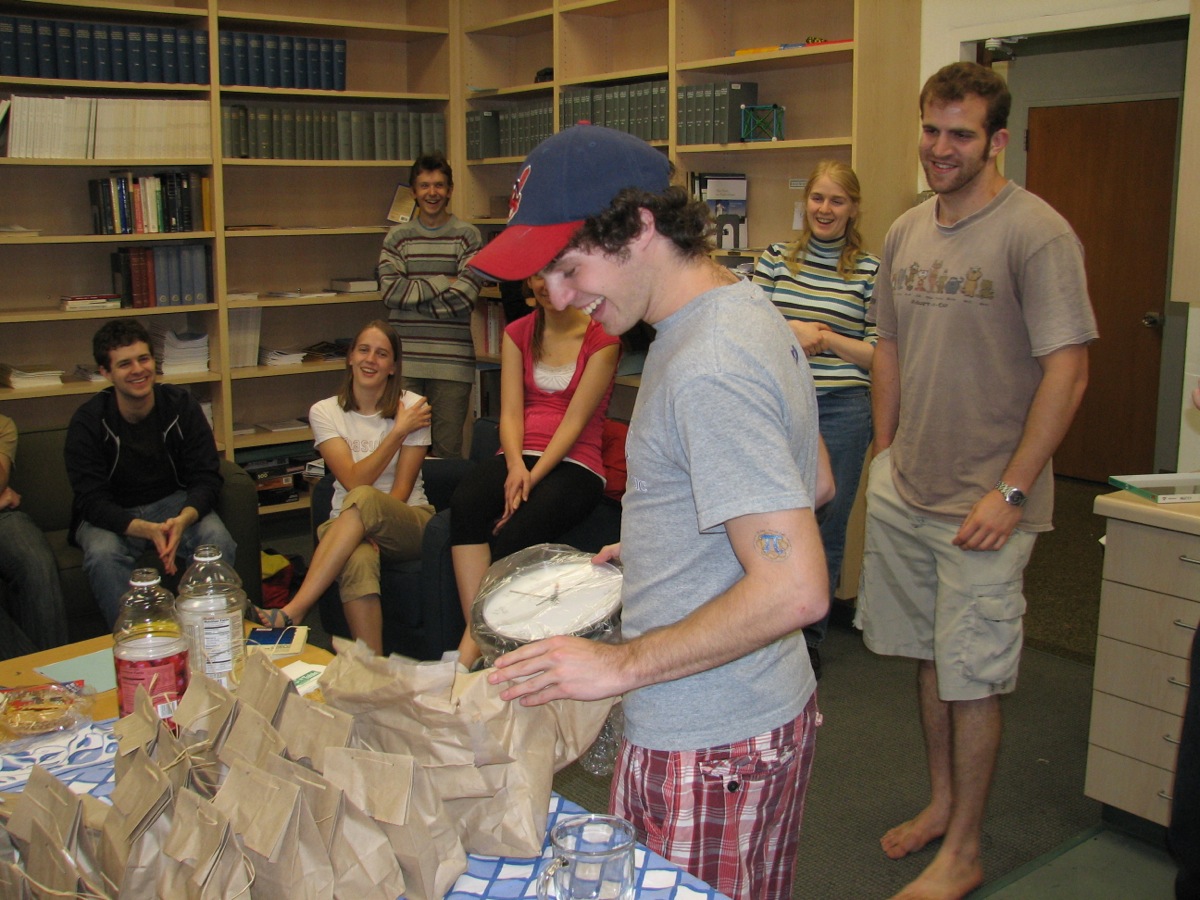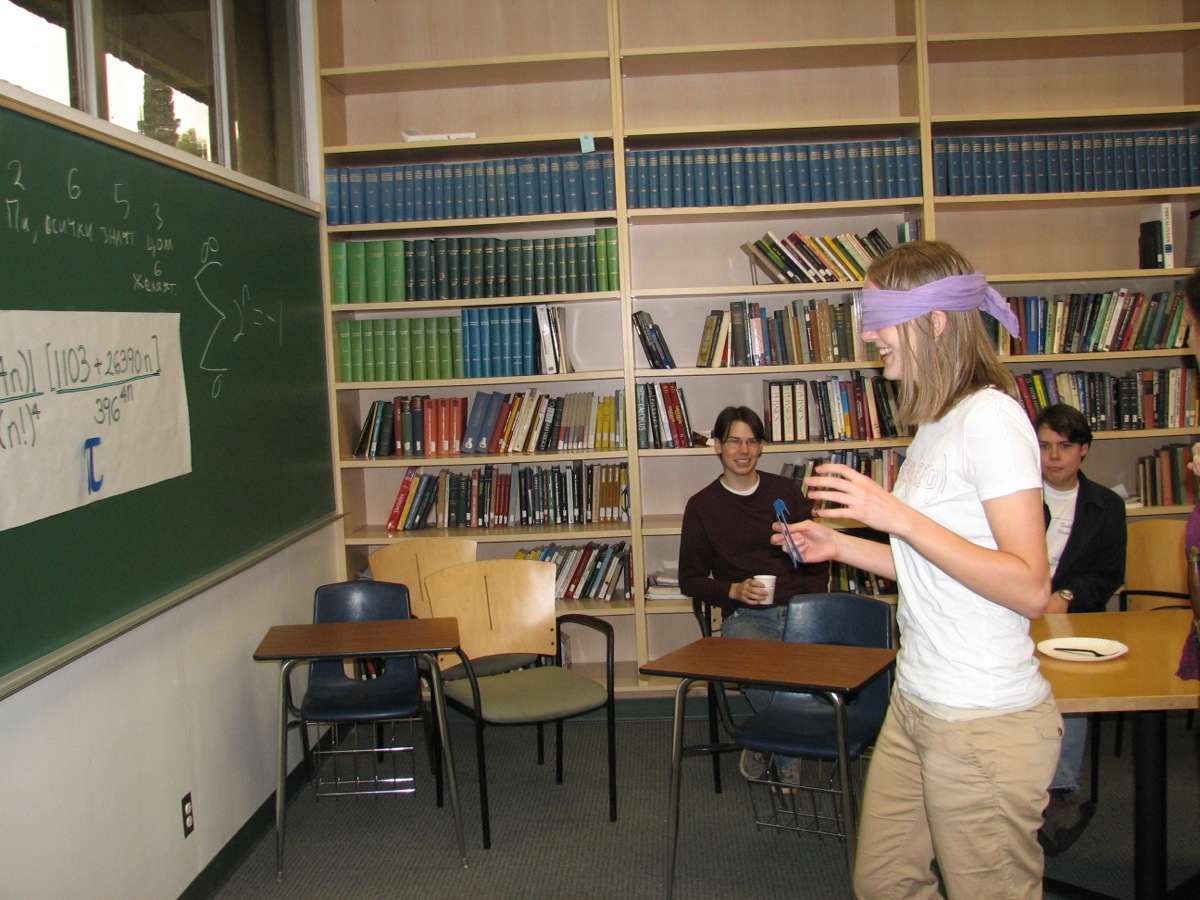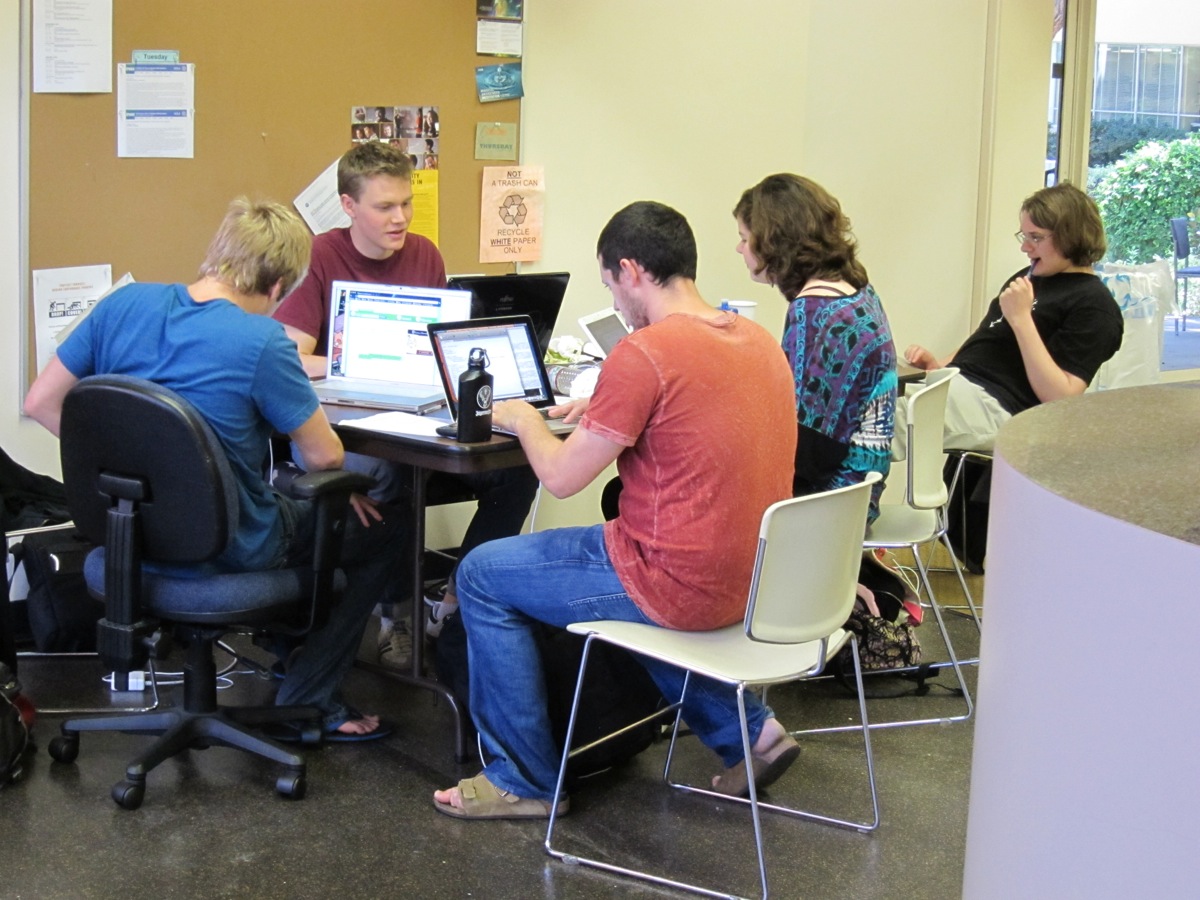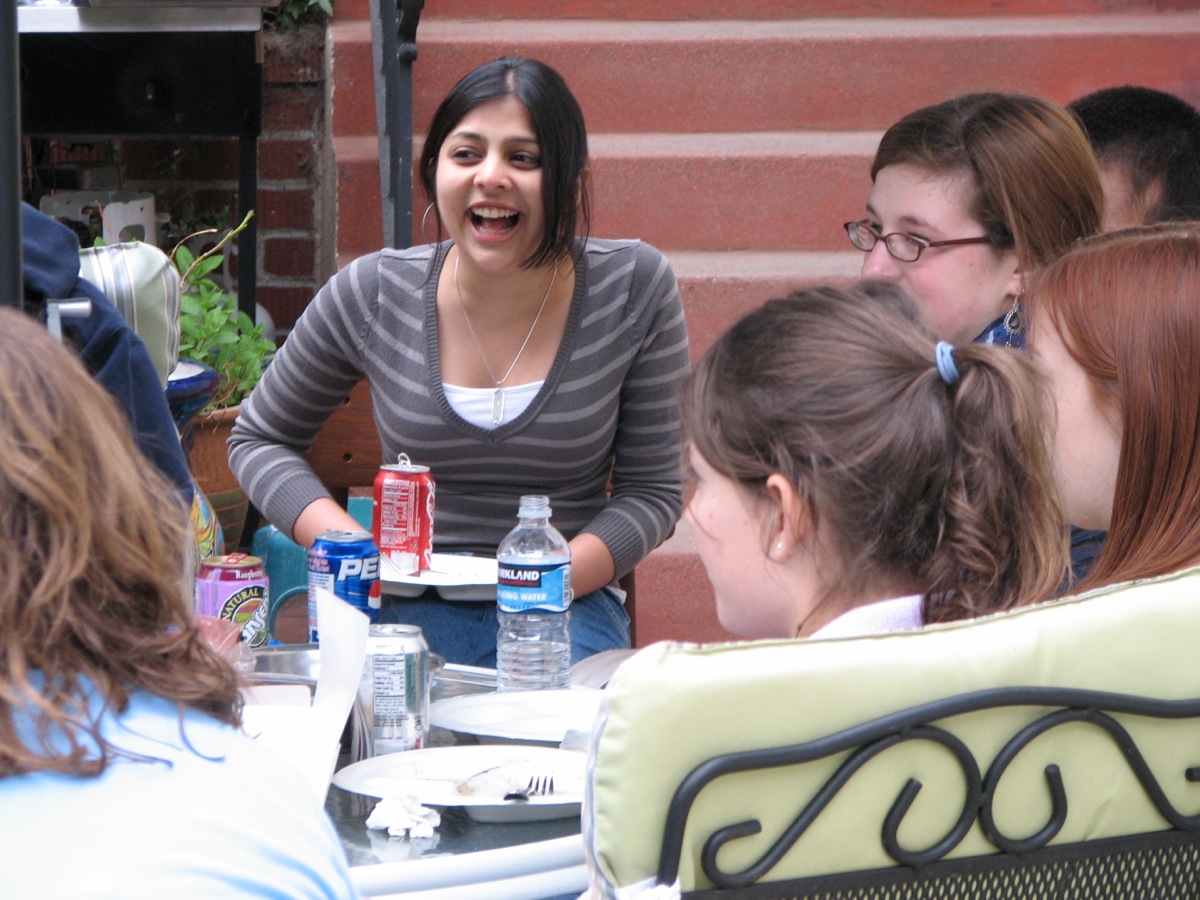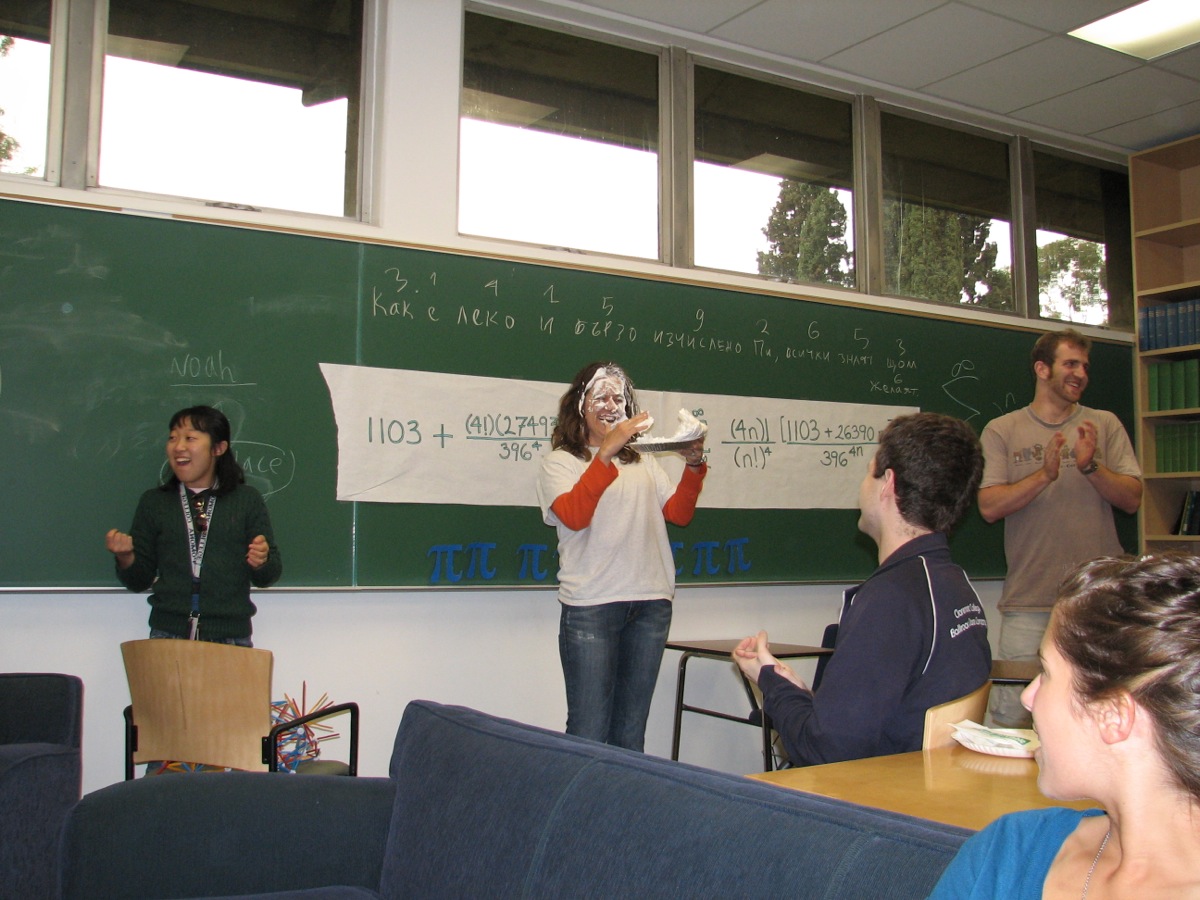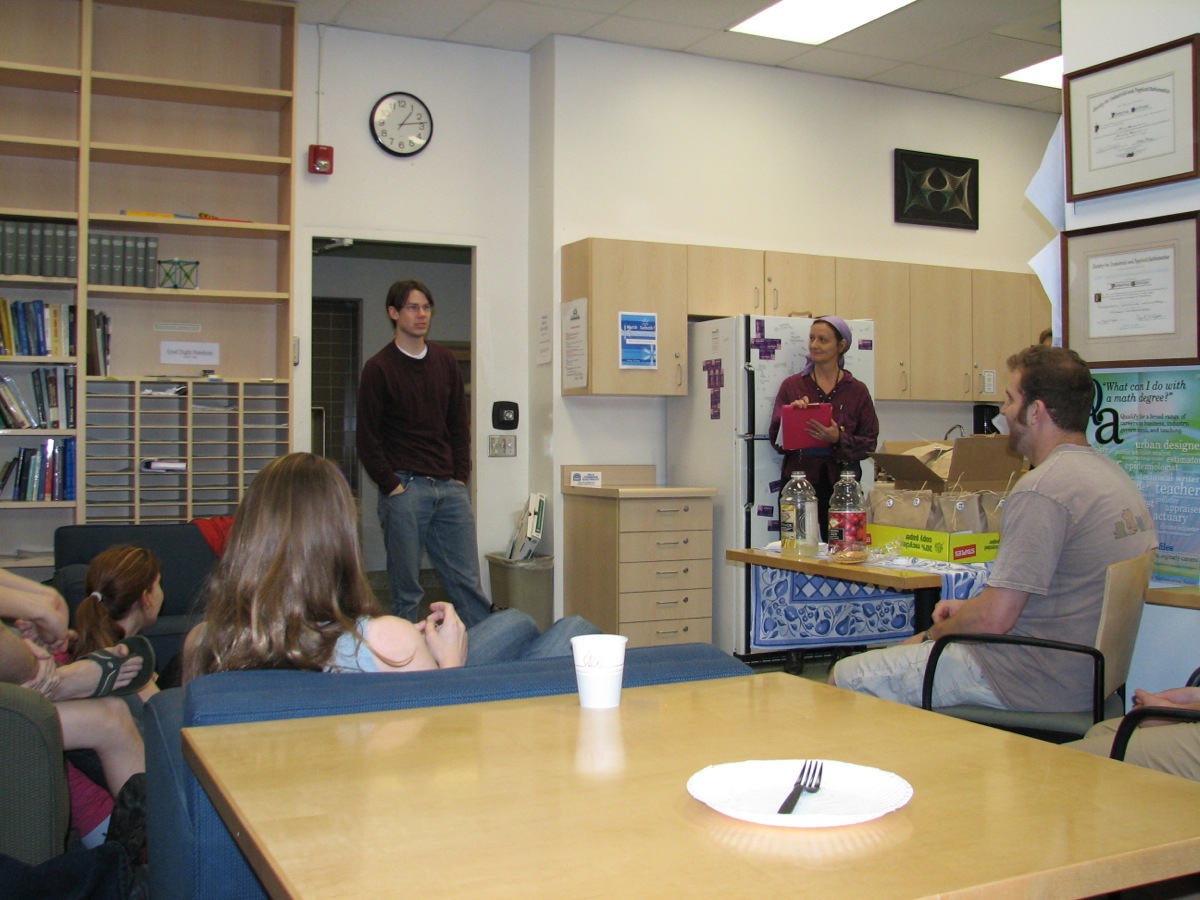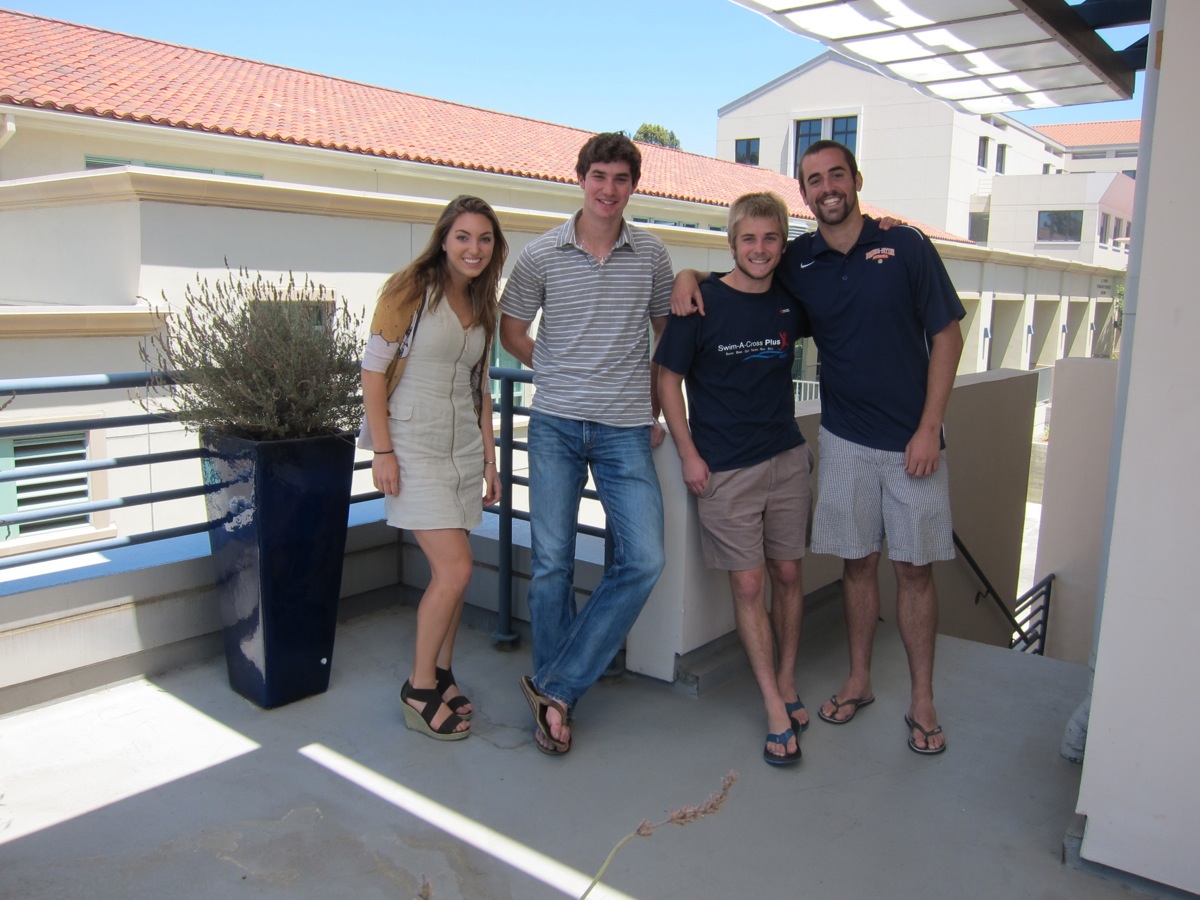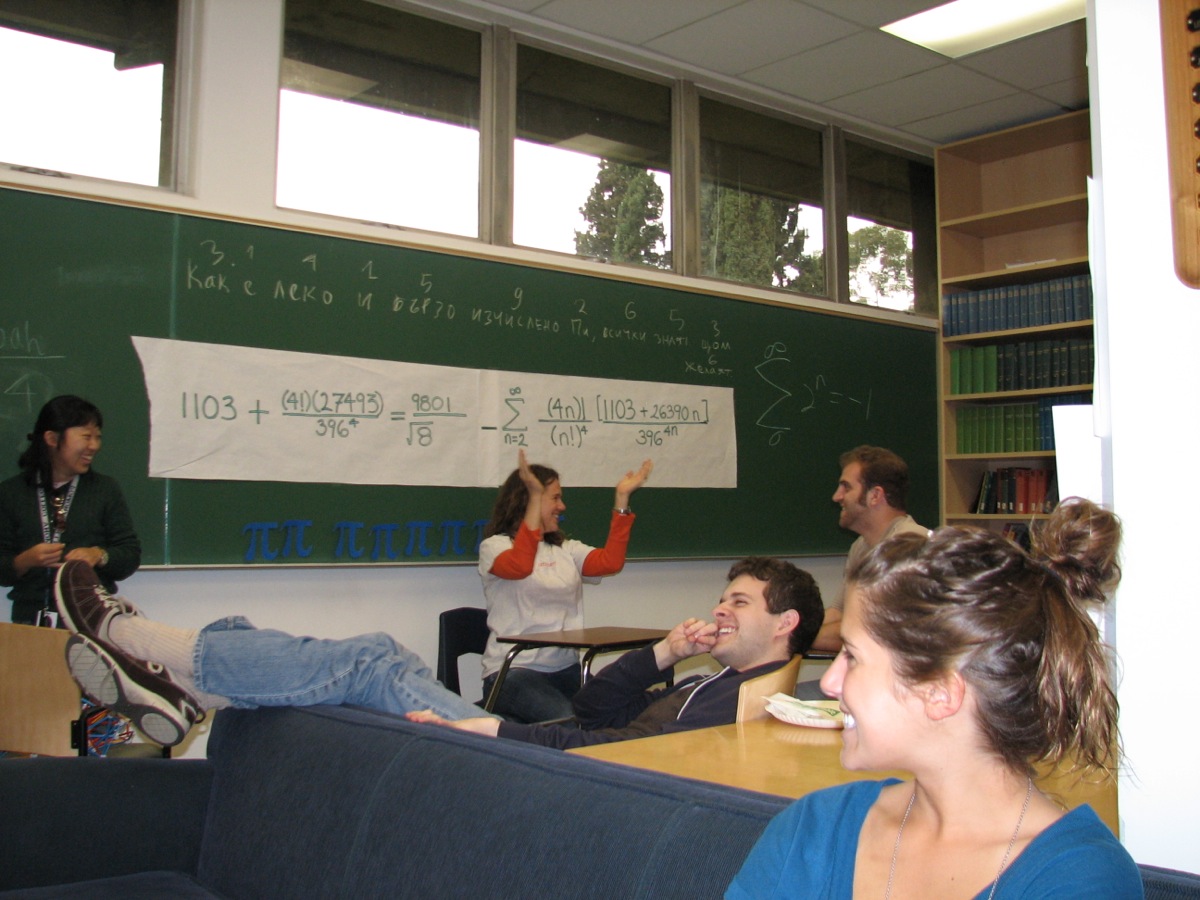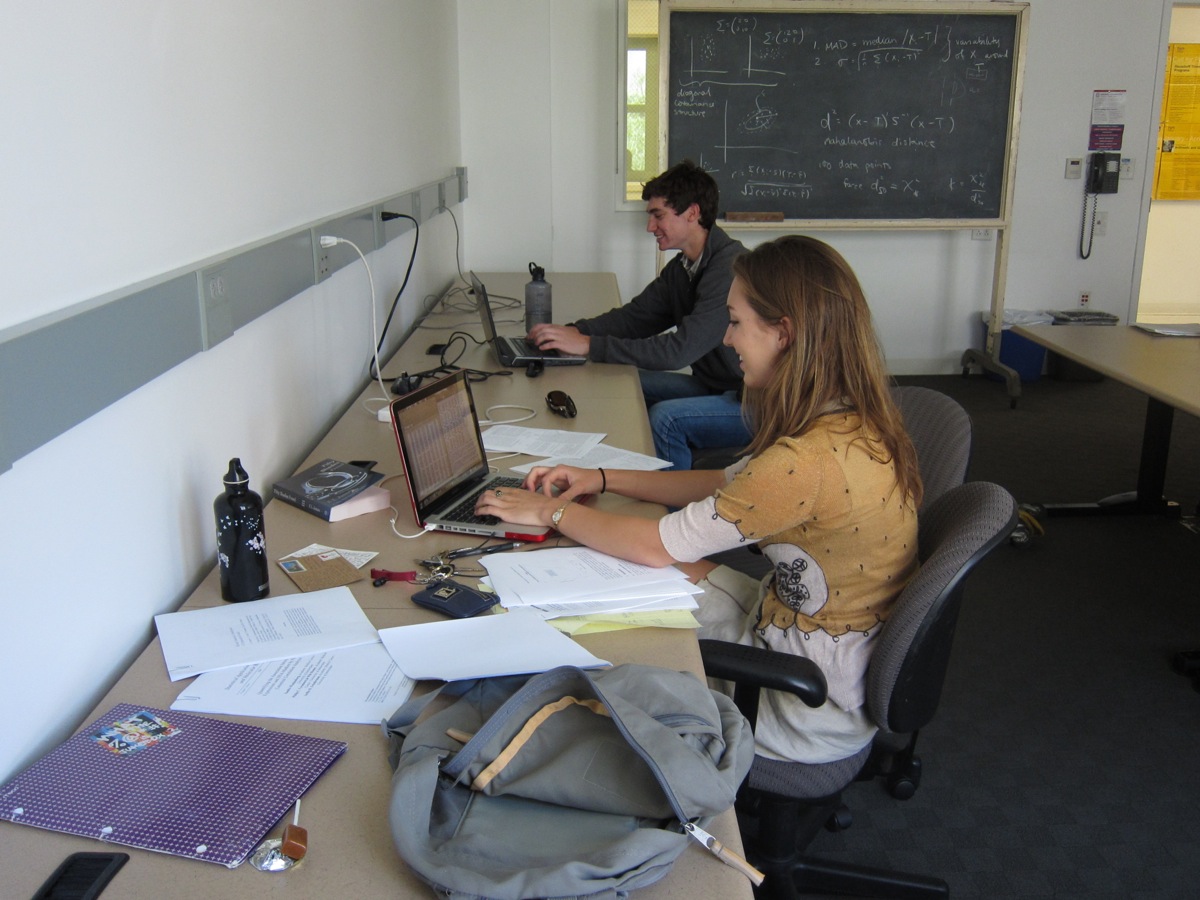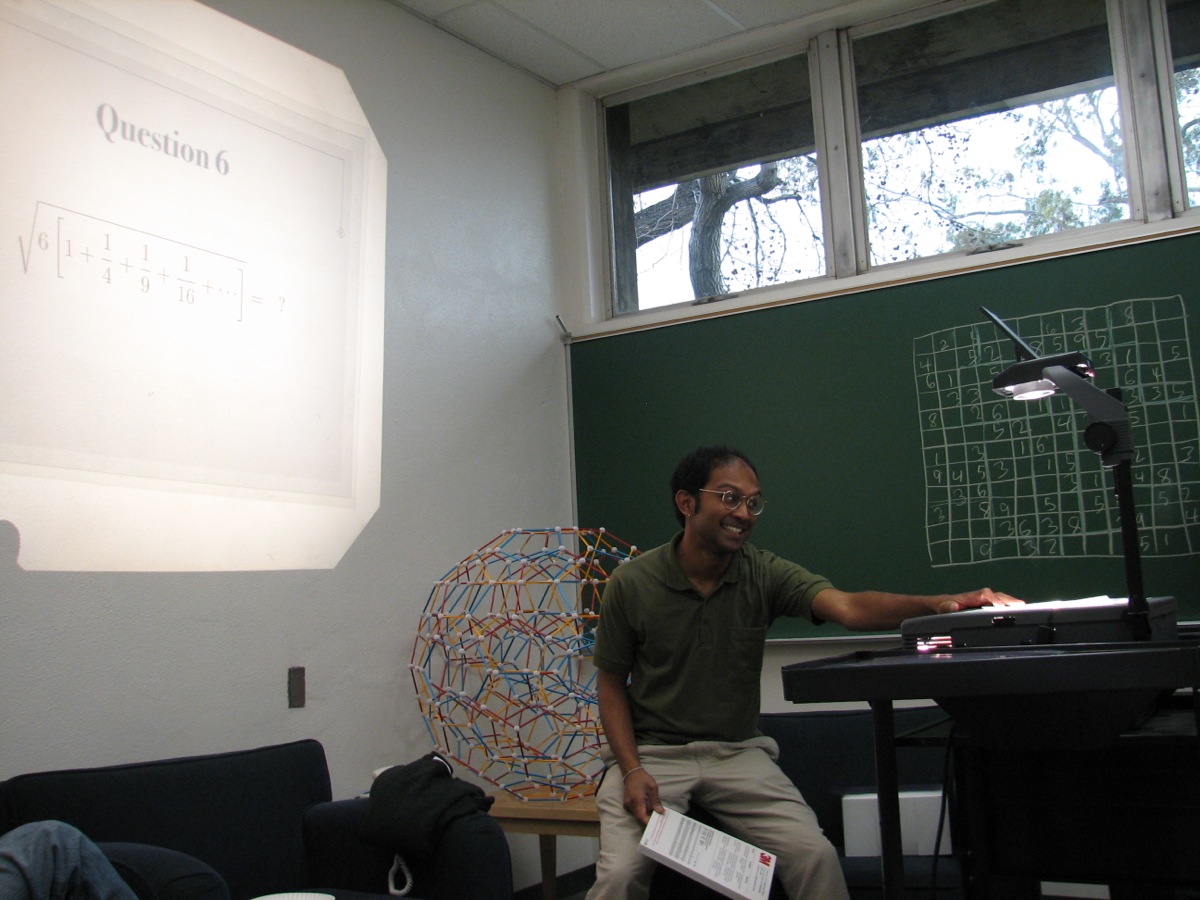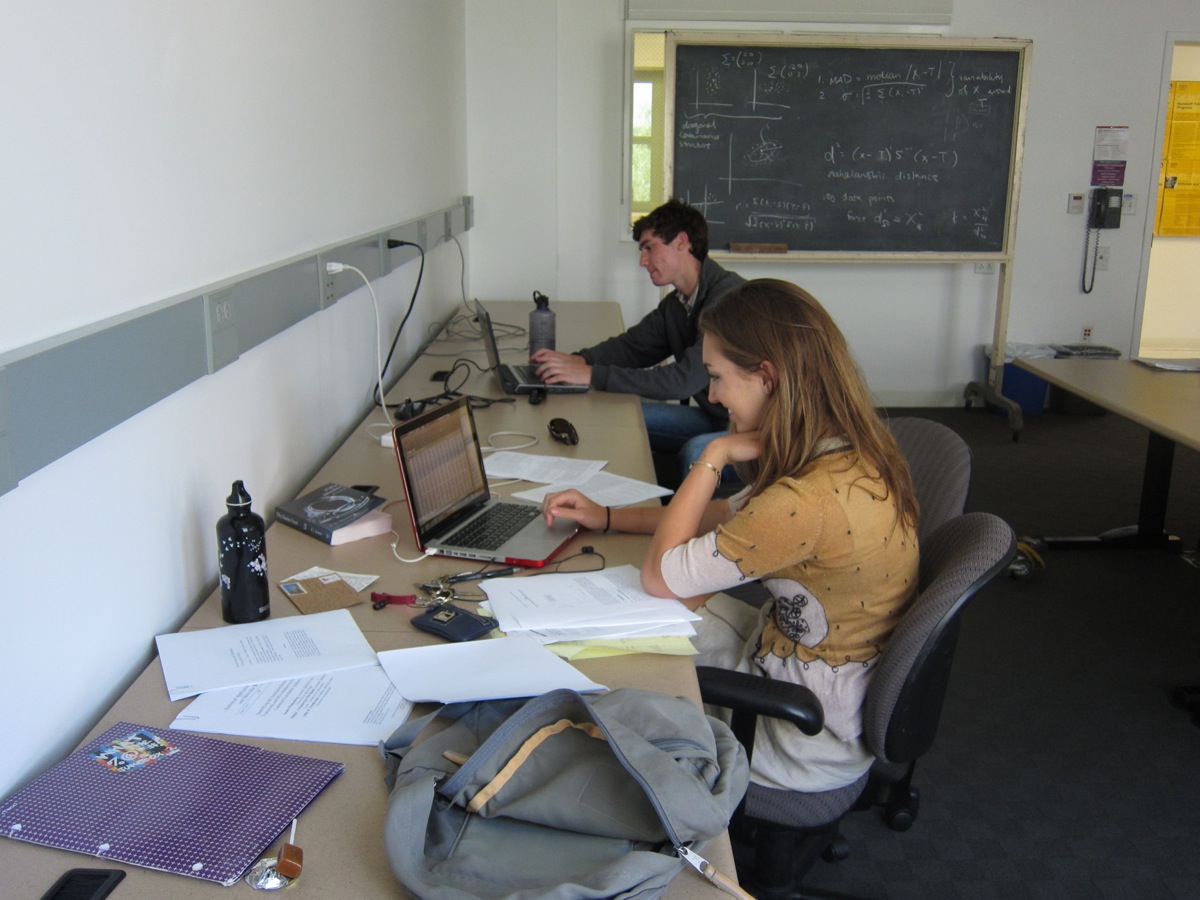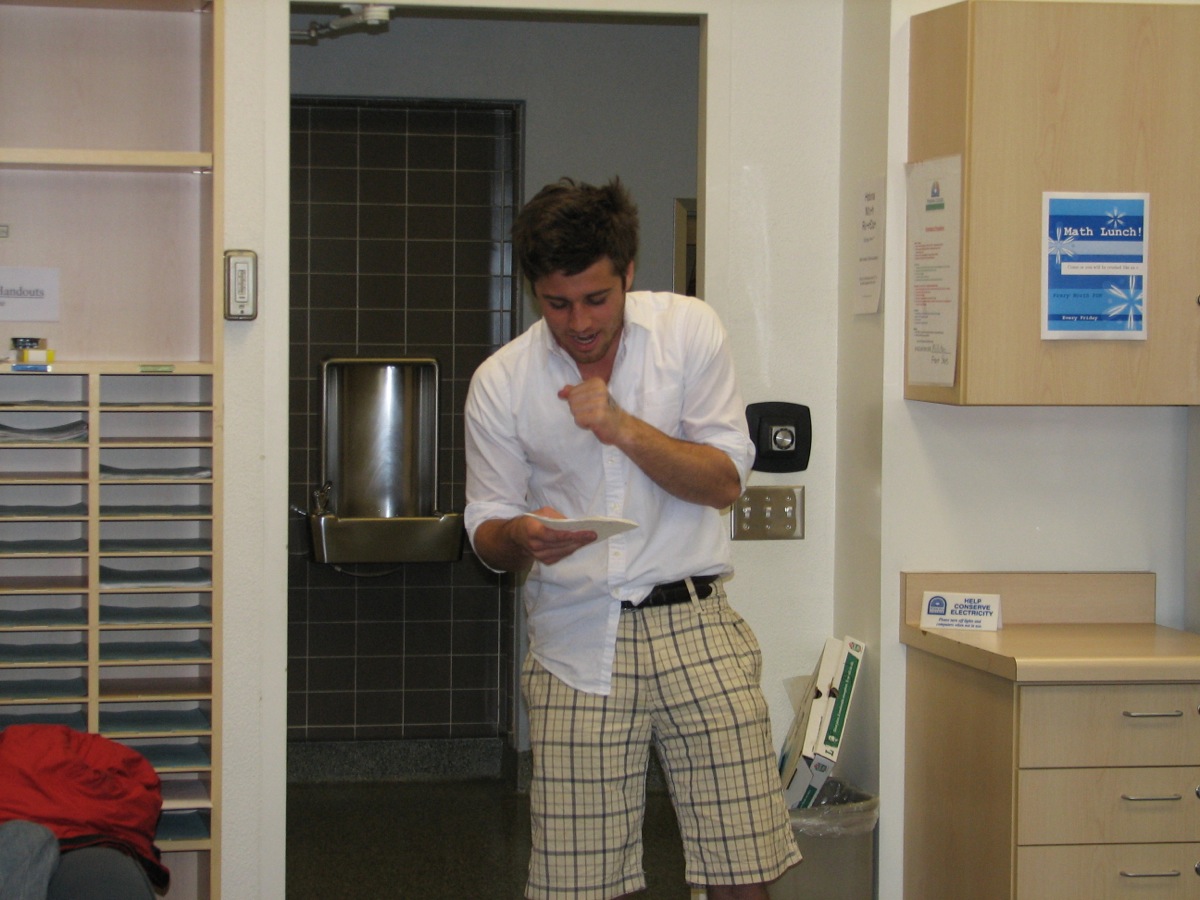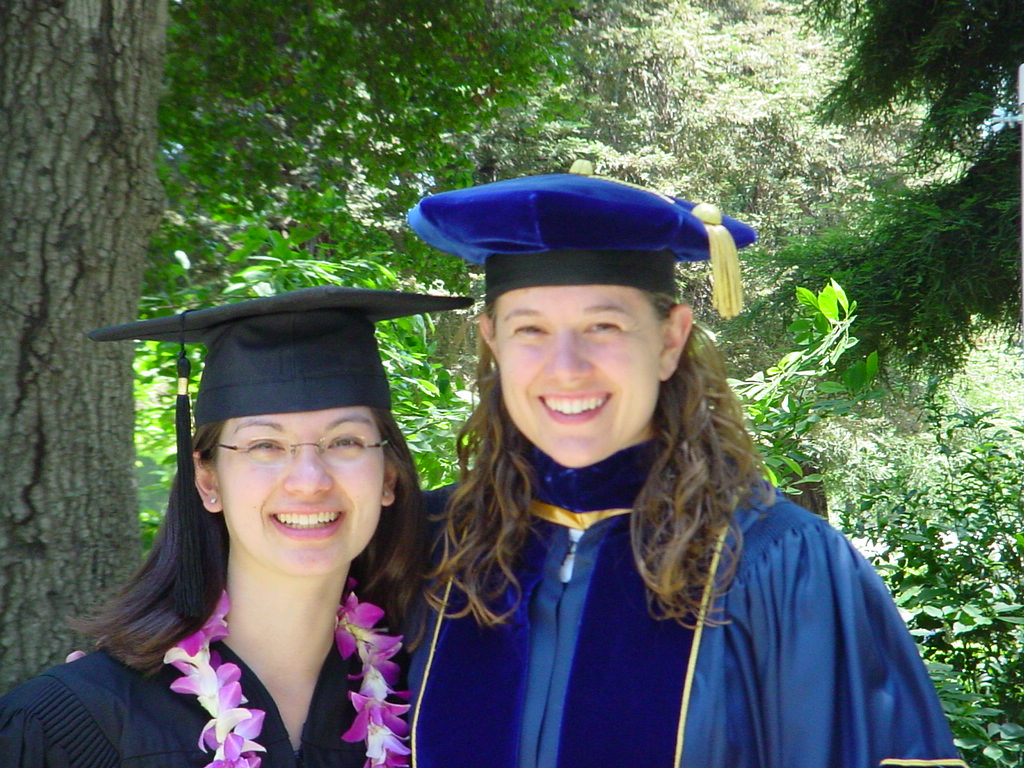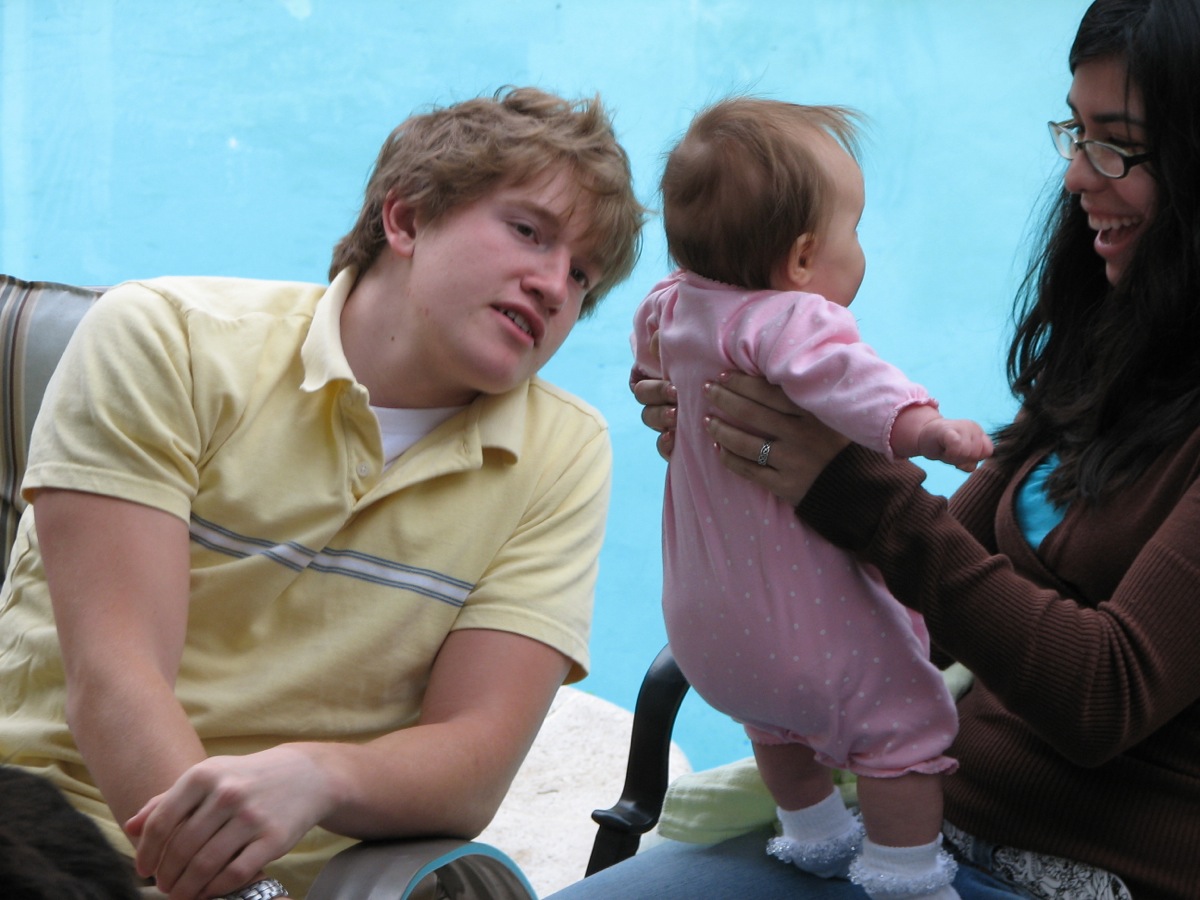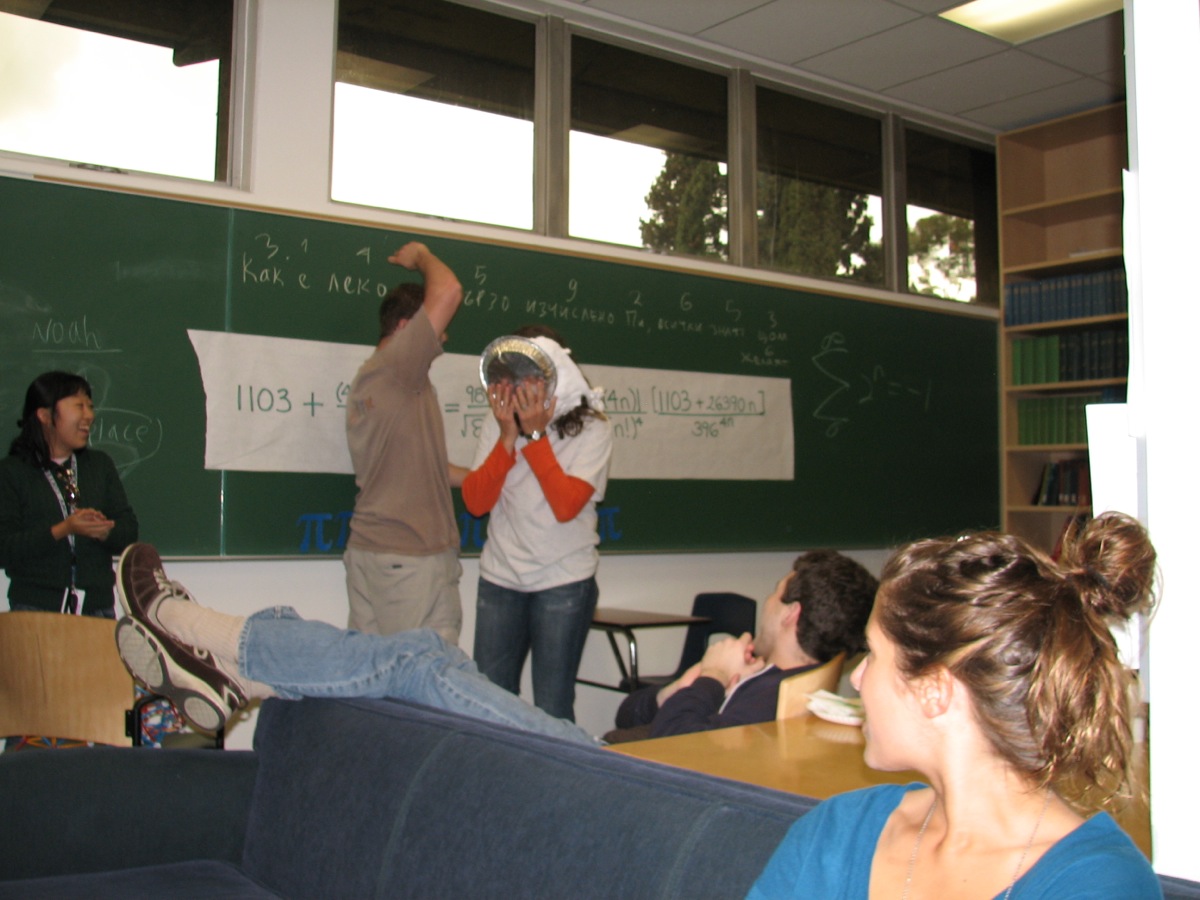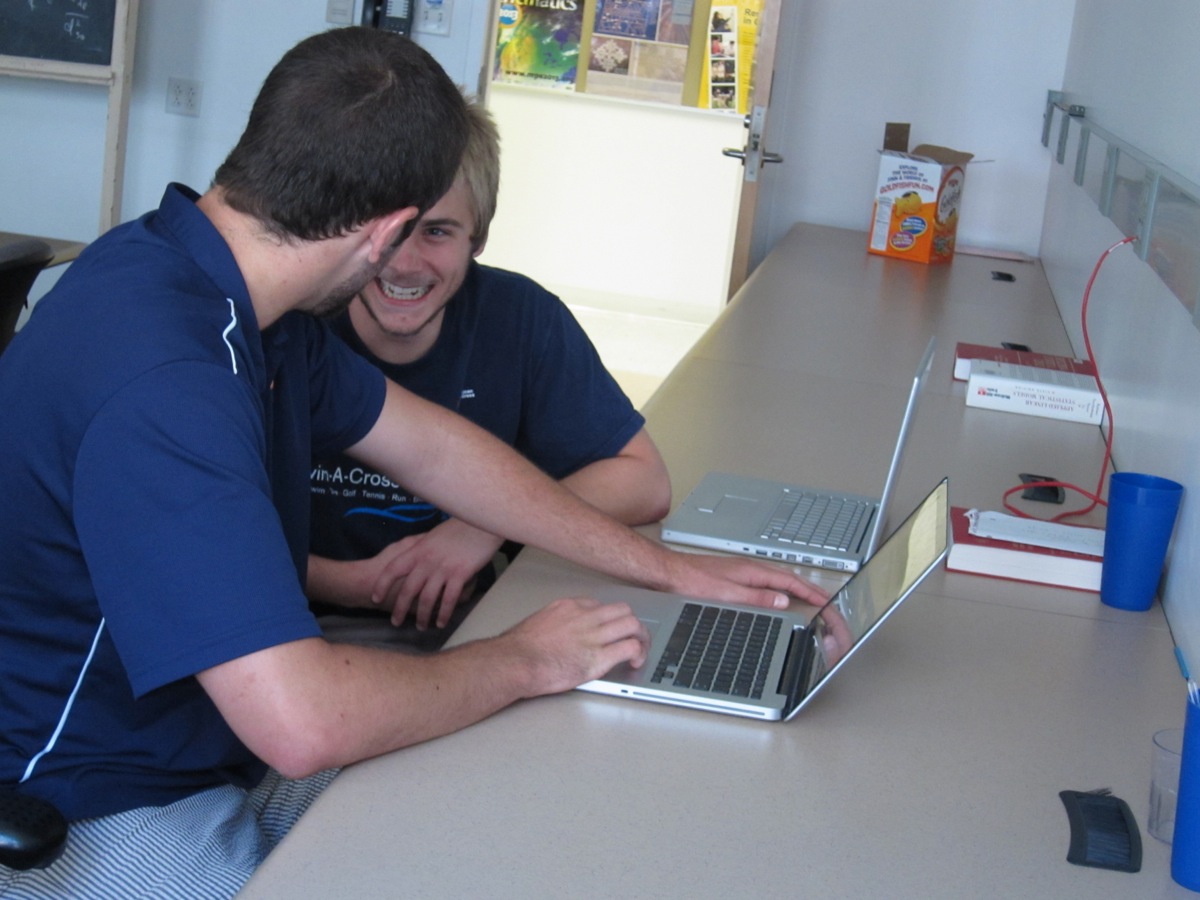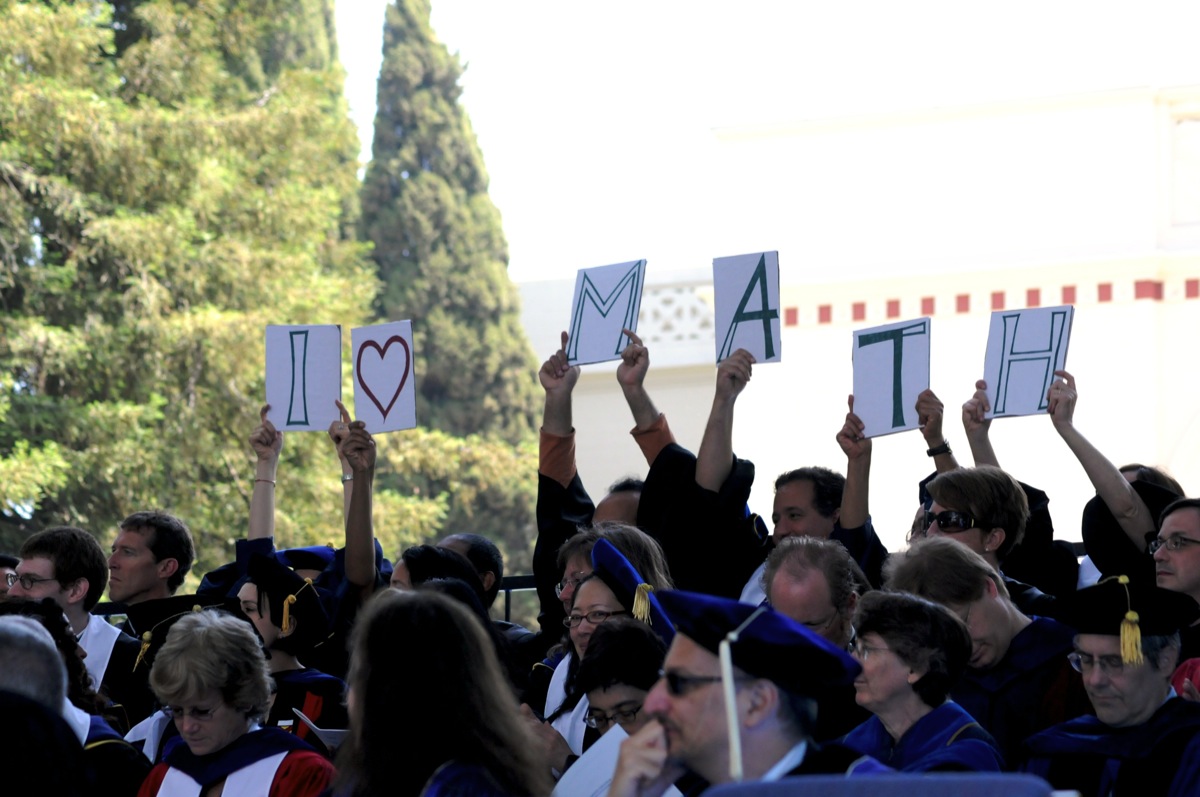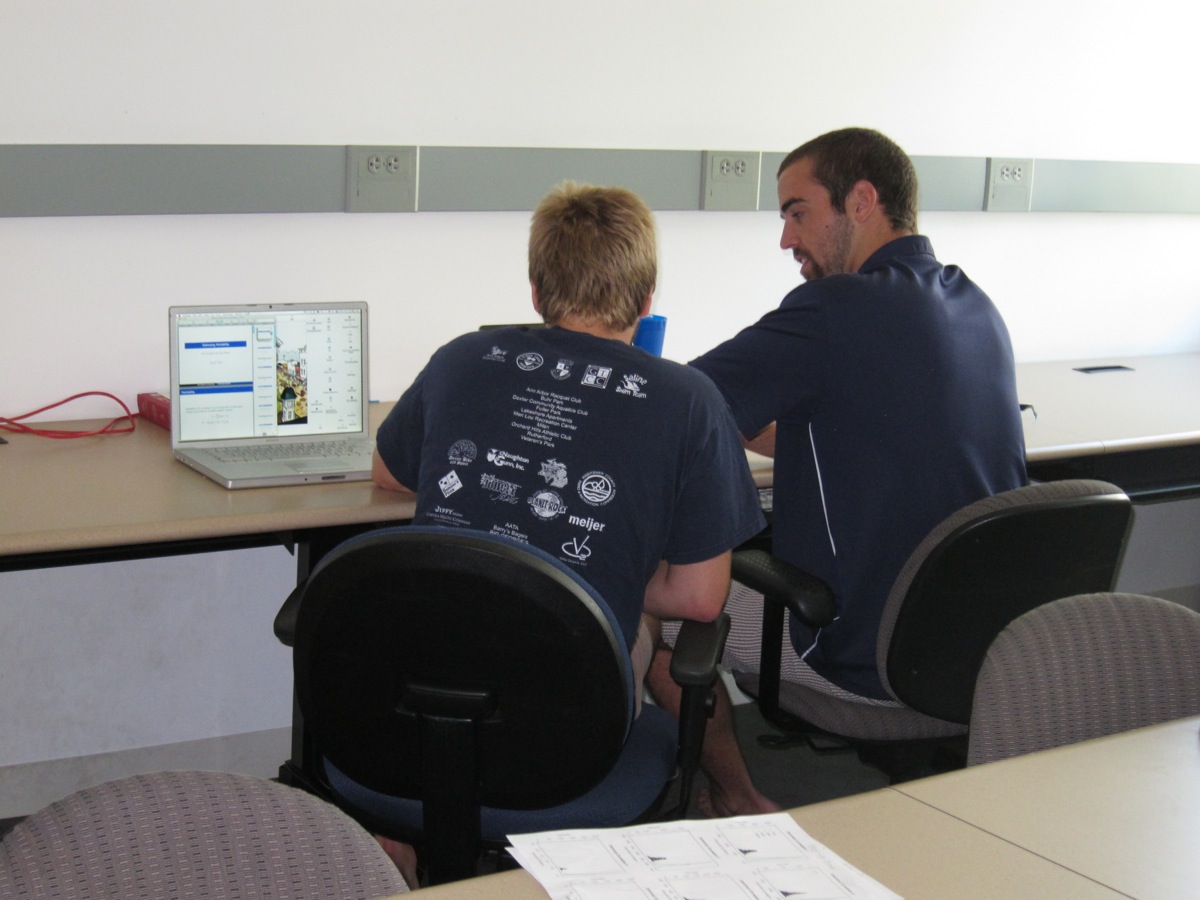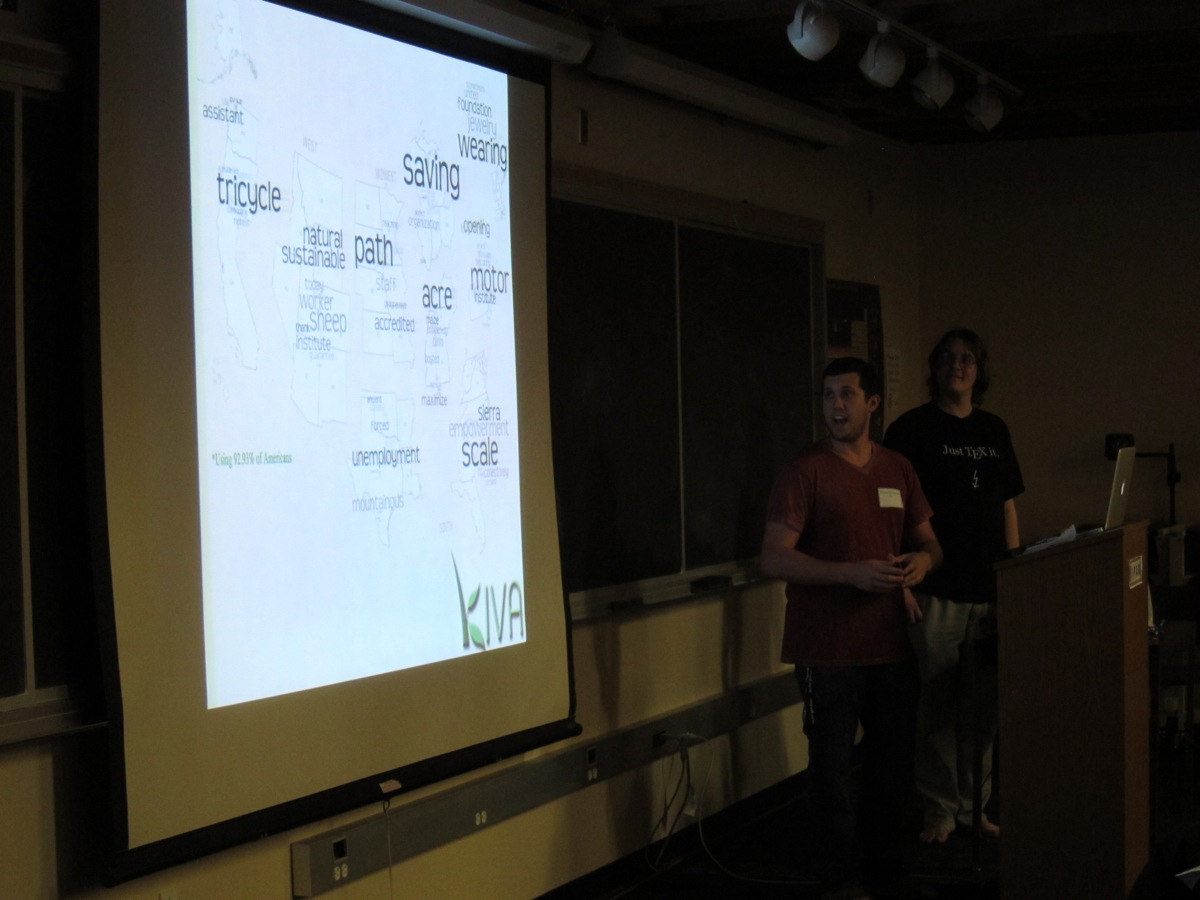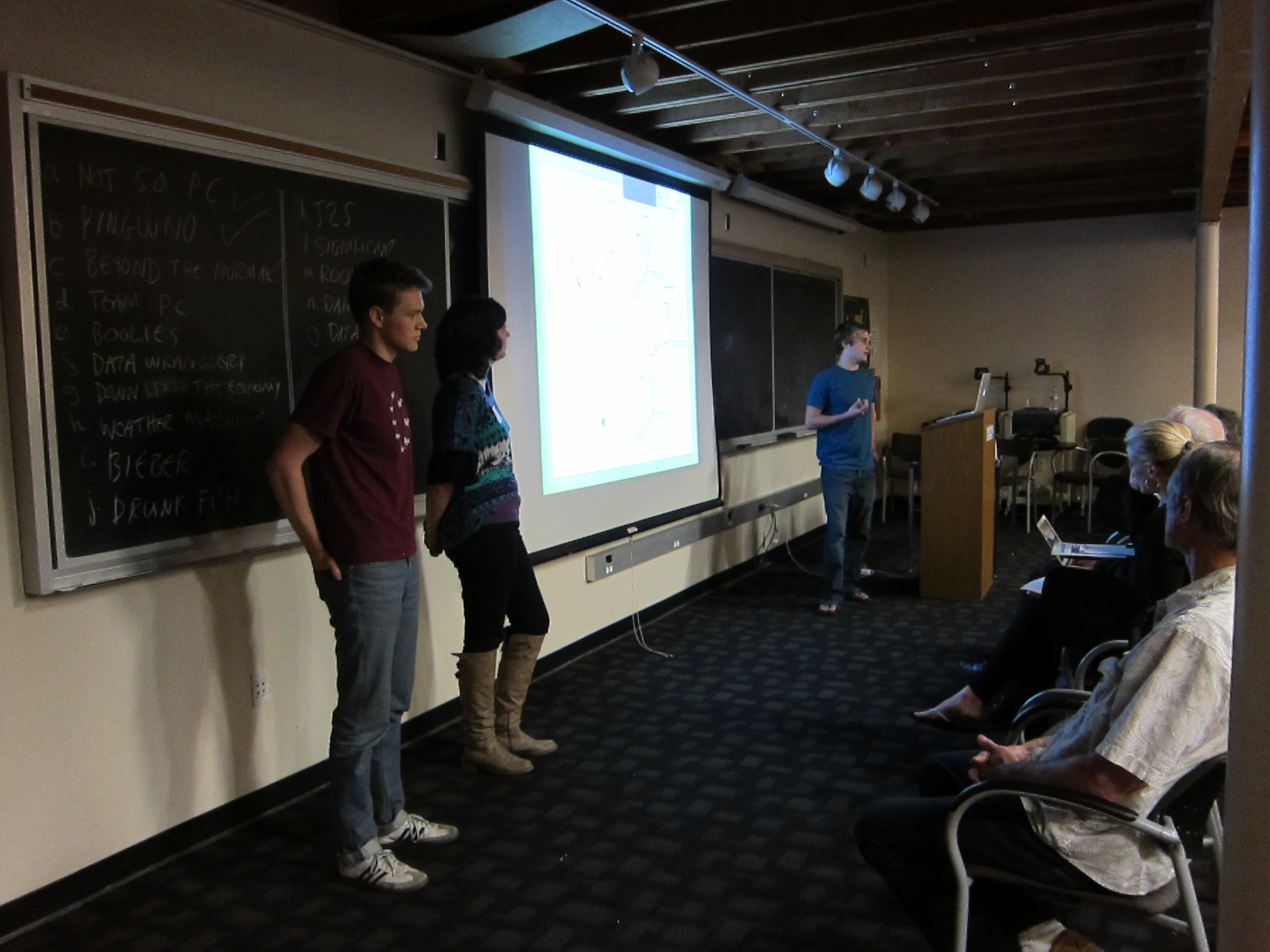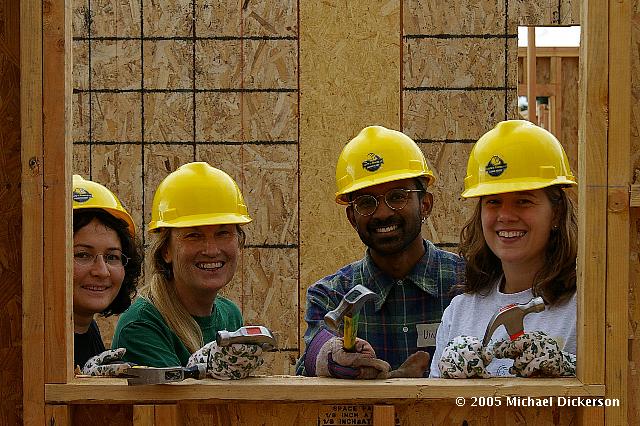Introduction to Biostatistics
Math 58B, Spring 2021
Jo Hardin
2351 Estella Laboratory
jo.hardin@pomona.edu
See Sakai for all relevant links
Office Hours (on Discord, see Sakai for link):
Tuesday 8:30-9:30am PT and 1:30 – 3pm PT
Thursday 7-8am PT and 12-2pm PT
Friday 9-10:30am PT
or by appointment
Mentors: TBD
Important Websites:
- Main course page
- Schedule / Homework Assignments
- Course Notes
- Main text: Introduction to Modern Statistics
- Applets: ISCAM
- Supplementary text / examples: ISCAM
- infer help
- rstudio.pomona.edu
Exam 1 (date: Friday, March 5)
Exam 2 (date: Friday, April 30)
Final Islands Project:
3/31/21: Pilot Study — research question, methods section, preliminary data
4/14/21: Power Analysis – calculation of sample size from the Pilot data
4/21/21: Preliminary Data Analysis — data summaries / visualizations, first draft of analysis, including regression
5/5/21: Full Draft – including multiple regression
5/7/21: Presentation — 2 slides, < 5 min presentation during lab time. You can create a video if you prefer to send that instead of presenting.
5/13/21: Final (edited) Project
5/13/21: Project Rubric
Text: I will follow Introductory to Modern Statistics reasonably closely (https://openintro-ims.netlify.app/). I have posted the daily sections on the course homework page. It would do you well to read over the text before we cover the material in class.
Many of the examples and all of the applets will be taken from Investigating Statistical Concepts, Applications, and Methods, by Chance & Rossman (if you want to see the details of the examples, you can purchase the R version of the text (.pdf) here for $5: http://www.rossmanchance.com/iscam3/).
ISCAM website with applets
Handouts:
- Class notes are here: http://st47s.com/Math58/Notes/
- Youtube videos on getting started with R and RStudio: Introduction to RStudio
- Some notes I wrote on R / RStudio / tidyverse / ggplot.
- R documentation / help
- Great tutorials through the Coding Club
- swirl package
- Google for R: http://www.rseek.org/
- R tutorial
- An Introduction to R, Venables & Smith
- R Language Definition, R Core Team
- Another tutorial, with exercises & solutions
- Mosaic Reference Guide, need to install the mosaic package
- A Student’s Guide to R; Horton, Pruim, Kaplan (click on “Raw” to download)
- Data Wrangling Cheatsheet: http://www.rstudio.com/resources/cheatsheets/
- Clicker Questions
- Reflection Questions — see the end of each chapter in online notes
- Confidence Intervals and Hypothesis Testing Cheat Sheet
- Advice for Exam 1
- Advice for Exam 2
- When to use what (as in HW 8)
Diversity and Inclusion Statement (adapted from Monica Linden, Brown University):
In an ideal world, science would be objective. However, much of science is subjective and is historically built on a small subset of privileged voices. In this class, we will make an effort to recognize how science (and statistics!) has played a role in both understanding diversity as well as in promoting systems of power and privilege. I acknowledge that it is possible that there may be both overt and covert biases in the material due to the lens with which it was written, even though the material is primarily of a scientific nature. Integrating a diverse set of experiences is important for a more comprehensive understanding of science. I would like to discuss issues of diversity in statistics as part of the course from time to time.
Please contact me if you have any suggestions to improve the quality of the course materials.
Furthermore, I would like to create a learning environment for my students that supports a diversity of thoughts, perspectives and experiences, and honors your identities (including race, gender, class, sexuality, religion, ability, etc.) To help accomplish this:
- If you have a name and/or set of pronouns that differ from those that appear in your official records, please let me know!
- If you feel like your performance in the class is being impacted by your experiences outside of class, please don’t hesitate to come and talk with me. You can also relay information to me via your mentors. I want to be a resource for you. If you prefer to speak with someone outside of the course, the math liaisons, Dean of Students, or QSC staff are all excellent resources.
I (like many people) am still in the process of learning about diverse perspectives and identities. If something was said in class (by anyone) that made you feel uncomfortable, please talk to me about it. As a participant in course discussions, you should also strive to honor the diversity of your classmates.
Homework:
- Homework will be assigned from the text, posted online, and due to Gradescope every Friday at midnight PT.
- One homework grade will be dropped.
- HW is graded on a scale of 5/4/3/2/1. See the first HW assignment for more information. One point will be deducted if superfluous information is printed or if assignment is excessively long.
- All R HW problems should be turned in as pdf documents compiled from an R Markdown file. Remember: knit early and often!
- Labs will be posted online by Friday mornings and due to Gradescope Wednesday at midnight PT.
- In an ideal world, you will work on the lab synchronously with your classmates on Fridays at 11am PT. If you are working asynchronously, let’s try to find a group for you for the labs.
- One lab grade will be dropped.
- Labs are graded on a scale of 5/4/3/2/1. See the first lab assignment for more information. One point will be deducted if superfluous information is printed or if assignment is excessively long.
- All labs should be turned in as pdf documents compiled from an R Markdown file. Remember: knit early and often!
- For help getting started with Gradescope:
- Get started page with links: https://www.gradescope.com/get_started
- First steps: https://www.youtube.com/watch?v=F2e9AK7pNFY
- Second steps: https://www.youtube.com/watch?v=VMM16gdREfg
- Annotation and navigation: https://www.youtube.com/watch?v=j–Lu90c_9I
- How to submit as a student: https://www.youtube.com/watch?v=KMPoby5g_nE
Computing:
- R and RStudio will be used for all homework assignments.
- You can use R on the Pomona server: https://rstudio.pomona.edu/ (All Pomona students will be able to log in immediately. Non-Pomona students need to get Pomona login information.)
- Alternatively, feel free to download R onto your own computer. R is freely available at http://www.r-project.org/ and is already installed on college computers. Additionally, you are required to install R Studio and turn in all R assignments using R Markdown. http://rstudio.org/. (You can use the LaTeX compiler at: https://yihui.name/tinytex/)
Participation:
- After every single class period, you will turn in the in-class warm-up assignment via Gradescope on Sakai.
- Ideally, you will use a scanner app on a mobile device to create .pdf documents of your assignments (any written part of the HW and the warm-ups). If you do not have access to a scanner app, please let me know ASAP, and we will figure out a way for you to turn in assignments as pdf.
- This class will be interactive which means that I hope you come to class. I recognize that not everyone lives in a time zone (or has some other constraint) conducive to being at class. If you can be in class, I hope you will join us. If you can’t be in class, you should still stay up with the class materials by watching videos and by turning in daily warm-up assignments.
- When you are in breakout rooms working on problems, I hope that you will turn on your camera and interact with your peers! If you can’t turn on your camera, I hope that you will have a photo of yourself (instead of a black screen) so that our class feels more like a community.
- This class will be using Discord to stay in touch. We will have office hours on Discord and it will also serve as a place to ask each other questions and stay up to date with the material. See Sakai for the Discord login information.
Reflection Questions:
- For each chapter, I will provide a list of questions (at the end of each chapter of notes, see notes) designed to help you reflect on the big picture of what we’ve covered. They will help you get unstuck from the weeds of technical details, computing, and HW problems. You should use them regularly: both to check your understanding and to study for exams. If you don’t know the answer to any question on material we have covered, you should clarify the concept with the mentor or the instructor as quickly as possible.
Academic Honesty:
- We will have take-home asynchronous exams. As such, you are on your honor to present only your work as part of that assessment. Below, I’ve provided Pomona’s academic honesty policy. But before the policy, I’ve given some thoughts on cheating which I have taken from Nick Ball’s CHEM 147 Collective (thank you, Prof Ball!). Prof Ball gives us all something to think about when we are learning in a classroom as well as on our journey to become scientists and professionals:
There are many known reasons why we may feel the need to “cheat” on problem sets or exams:
-
-
- An academic environment that values grades above learning.
- Financial aid is critical for remaining in school that places undue pressure on maintaining a high GPA.
- Navigating school, work, and/or family obligations that have diverted focus from class.
- Challenges balancing coursework and mental health.
- Balancing academic, family, peer, or personal issues.
-
Being accused of cheating – whether it has occurred or not – can be devastating for students. The college requires me to respond to potential academic dishonesty with a process that is very long and damaging. As your instructor, I care about you and want to offer alternatives to prevent us from having to go through this process. If you find yourself in a situation where “cheating” seems like the only option:
Please come talk to me. We will figure this out together.
- Pomona College is an academic community, all of whose members are expected to abide by ethical standards both in their conduct and in their exercise of responsibilities toward other members of the community. The college expects students to understand and adhere to basic standards of honesty and academic integrity. These standards include, but are not limited to, the following:
- In projects and assignments prepared independently, students never represent the ideas or the language of others as their own.
- Students do not destroy or alter either the work of other students or the educational resources and materials of the College.
- Students neither give nor receive assistance in examinations.
- Students do not take unfair advantage of fellow students by representing work completed for one course as original work for another or by deliberately disregarding course rules and regulations.
- In laboratory or research projects involving the collection of data, students accurately report data observed and do not alter these data for any reason.
Advice:
- Please email and / or set up a time to talk if you have any questions about or difficulty with the material, the computing, or the course. Talk to me as soon as possible if you find yourself struggling. The material will build on itself, so it will be much easier to catch up if the concepts get clarified earlier rather than later. This semester is going to be fun. Let’s do it.
Grading:
- 15% Homework
- 10% Labs
- 25% Exam 1
- 25% Exam 2
- 15% Final Project
- 10% Warm-up exercises

